
Join us at the Annapolis Boat Show Oct 10 – 14 and sign up for our Charter Management Seminar. CLICK HERE!

Buying a Yacht in Europe: Tax and Legal Considerations
We are often asked about applicable taxes in Europe for boat owners because there is a lot of confusion surrounding VAT Tax. While buying a yacht outside the US has benefits for some, it also has lots of complexities and nuances that you are probably less familiar with. So, if you are planning to buy a boat in Europe, make sure you understand the tax implications, especially if you plan to cruise in Europe for an extended period of time. Here we share information that will offer you guidance on the right questions to ask. Always employ a tax professional, legal counsel, and other assistance to ensure you are getting the correct guidance for your specific situation.

vat tax on a yacht in the european union
- All EU residents who own a boat and use the boat within the EU are required to pay a 20 % Value Added Tax (VAT), which will hike up the sales price considerably. It’s important not to underestimate the complexity of VAT on vessels, especially for higher value yachts. As a matter of course when you check into an EU country or when you sell the boat, you will be required to provide evidence of VAT paid much like a Federal Duty paid certificate in the US.
- For non-EU residents, the laws state that they are permitted to use privately owned yachts in the Mediterranean under “Temporary Admission” for up to 18 months without being liable to pay VAT. So if you want to cruise in the Mediterranean for a few months after taking possession, you can temporarily import the boat for up to 18 months.
- If you are planning to transfer residence to the EU and it coincides with the permanent importation of the boat, you may be eligible for VAT relief.
- After extended cruising outside the EU, a VAT paid boat exported from the EU may also qualify for relief on its return if it’s returned to the EU within three years of export. It must be imported by the person who exported it from the EU and cannot have significant upgrades that will increase its value substantially.
- Boats that are kept outside the EU for more than three years may be required to pay VAT again so be careful about keeping good records.
- A VAT paid boat could lose its VAT paid status if it’s sold outside the EU and VAT must then be paid if the boat is brought back into the EU, even if the buyer and seller are EU residents.
- A European Union (EU) resident who buys a new boat or a used boat for personal use that did not have VAT paid will be responsible to pay the VAT rate applicable at the place of delivery as well as transfer tax or import duties. However, if the boat is acquired for commercial purposes or leased, the rules apply differently.
- An off-shore registered yacht owned for commercial purposes in the Mediterranean is exempt from VAT, if the boat was imported into the Med per the applicable regulations.
It's All About Location
The location of the yacht, the residence of the buyer, and where the yacht will be operated as a business. Each aspect impacts not only taxes and duties at time of purchase, but also taxes related to collecting revenue. Some examples will help you better understand just how intricately entwined the location of the yacht, buyer, and business are:
- Non-EU residents are permitted to use privately owned yachts in the Mediterranean under “Temporary Admission” for up to 18 months without being liable to pay VAT.
As you can see, to determine the appropriate legal and tax implications and rules you need to follow in your situation, it is vital to do deep due diligence to analyze the operational tax and flagging issues, cruising waters, nationality and residence of the vessel’s users, and any planned chartering operation.
*The information above is for general purposes only and should not be relied upon as a legal or tax advice.
Wanda Anglin
Join our community.
Get the latest on catamaran news, sailing events, buying and selling tips, community happenings, webinars & seminars, and much more!
1 thought on “Buying a Yacht in Europe: Tax and Legal Considerations”
Hi I am Swiss and looking to buy a used boat in the Schengen (EU) are. What are my VAT tax implications? Thank you.
Leave a Comment Cancel Reply
Your email address will not be published. Required fields are marked *
Save my name, email, and website in this browser for the next time I comment.
Recent Posts

Top 10 Reasons to Sell (and Sail) Your Catamaran in Annapolis, MD
We have a new home in Annapolis! The office is located in Annapolis, Maryland

Top 10 Reasons to Sell (and Sail) Your Catamaran in Texas
Our Texas Office is located in the Watergate Marina Center in Clear Lake Shores,

Annapolis Boat Show 2024
Meet with our team! Want to learn more about the Bali and Catana

Exploring the Catana OC 50 Catamaran: A Comprehensive Overview
The Catana OC 50 Catamaran, the latest addition to the Catana Ocean Class series,
For more than 30 years, we have been a part of the catamaran community and created Catamaran Guru™ to encourage and educate all the aspiring sailing out there. We understand the dream of traveling the world by catamaran and created a one-stop-shop to make that dream a reality for you.

- Stephen & Estelle
- Testimonials
Get Started
- Yacht Sales
- Used Yachts
- Charter Management
- Boat as Business Programs
- Seminars & Events

The EU has established a VAT tax scheme that in general provides VAT liability for boats purchased in or formally imported into all EU waters. While these are EU guidelines, they are interpreted, administered and enforced by each member country’s taxing authority. Therefore, boat owners may often experience some difficulties and misunderstandings in various EU countries. Moreover, it is usually the local official who interprets and enforces these guidelines. To the extent each member country has a history of relatively local autonomy in civil matters, to the extent where the infrastructure of the taxing system is less centrally coordinated, computerized and audited, and/or to the extent the culture of the member country is more or less rigorous in administering such matters, the nature of implementing VAT guidelines will take various forms and interpretation. Over time, it’s reasonable to expect continued leveling in this variability but an absolute uniformity has not yet appeared up to the present time.
Two normal methods by which VAT is administered and enforced by customs officials are a) via the clearance procedures when cruising boats enter an EU country, and b) routine inspections of cruising boats once the boat is within its borders. Thus, VAT can in practice be less of an issue in countries that prefer NOT to emphasize clearance paperwork of privately owned yachts and/or who don’t emphasize routine inspections. Spain is a good example of this, as are the Scandinavia countries. Meanwhile, in countries with more vigorous clearance, port oversight and also active inspection programs such as France, VAT becomes a more relevant issue for the yacht owner.
A boat owned by EU resident individual or body corporate has the right to free movement throughout the EU, provided VAT has been paid on that vessel in one of the EU countries.
An EU national may establish residence outside the EU VAT zone, for example BVI or Gibraltar, and thereby avail himself of the temporary importation relief from VAT.
Although there is no legal time limit on the length of time a EU registered boat, which paid the VAT, can spend in any EU country, it appears that some countries occasionally enforce local regulations once the boat has been in that country for six months.
Although the new regulations came into force in 1993, considerable confusion still exists. This should improve once the VAT situation is cleared as there are still thousands of boats belonging to EU residents who, for some reason or other, have not paid VAT on their boats. In many cases these boats are based in another EU country than the one where the owner resides and therefore they are liable to VAT. The rules are very clear and a boat belonging to a EU citizen, or flying the flag of a EU country, must be VAT paid. This means that both in home waters and when sailing between any EU countries, such boats should carry evidence of VAT payment. This could be the original boat builder’s receipt or paid invoice, or some other original document showing clearly that VAT has been paid. Those who are exempt from this rule must have on board a document issued by customs or the relevant authority stating the reasons for such exemption.
Non-EU vessels
A VAT paid yacht will encounter no difficulties in EU waters provided the vessel is not chartered. Pleasure yachts built pre-1985 and in EU waters on 31st December 1992 are treated as VAT paid. Evidence that the yacht was in EU waters on this date may be required.
Temporary importation relief from VAT is available to yachts beneficially owned and used by non EU residents provided such non EU resident does not become ordinarily resident in the EU.
Boats owned by non-EU residents and registered outside the EU are entitled to tax free temporary importation into the EU for a total period of eighteen months. The EU Common Customs Tariff provides for relief from VAT liability for up to 18 months (Article 562(e) as referenced above) when the boat is owned by non-EU residents and where the boat will subsequently be removed from EU waters (Article 561). The permitted period, or temporary importation, applies to the entire EU area and therefore at the end of the period the boat must be sailed to a country outside the EU or VAT must be paid. The temporary importation period may be extended, at the discretion of local customs, for various bona fide reasons, such as if the boat is left unattended and unused, if the owner leaves the EU, or if the boat is left in the care of a boatyard for repair.
Those who wish to remain longer in any one EU country must deposit the ship’s papers with the local customs office, who will put the vessel under bond. The clock will then be stopped until the owner returns on board. During the period the vessel is in bond, the boat must not move from its berth, and the owner or crew are not allowed to sleep on board.
Non-EU boats remaining inside the EU for over the permitted period must be imported and VAT paid on the value of the boat. Anyone intending to do this would be well advised to import the boat into one of the EU countries with a lower VAT rate, such as Cyprus, Madeira or Malta.
There has been a harmonization of formalities concerning VAT in recent years, but there are still certain inconsistencies so the owners of boats from outside the EU should treat the matter with utmost caution and avoid being caught out. It must be stressed that the above 18-month VAT relief applies only where the boat is owned and sailed by a person not resident in the customs territory of the EU. The relief is invalidated if the boat is hired, sold or put at the disposal of a EU resident.
It is essential to ascertain on arrival in a new country the exact situation concerning VAT. As non-EU boats are required to contact immigration whenever crossing a border between EU countries, this may be the time to make such enquiries.
The legal provisions on temporary importation are found in: Articles 137 to 144 of the Customs Code (Council Regulation (EEC) N° 2913/92 of 12 October 1992 establishing the Community Customs) and in particular Articles 553 to 562 of the implementing provisions of the Customs Code (Commission Regulation (EEC) No 2454/93 of 2 July 1993).
Customs Procedures in the European Union
Departure from a EU port to another EU port: no formalities required. Arrival in a EU port directly from another EU port: no formalities for EU vessels and EU citizens. Immigration must be contacted if there are non-EU citizens aboard. Customs must be notified if there is anything to declare, such as firearms.
Departure from a EU port to a non-EU port: customs and immigration must be notified. Arrival in a EU port from a non-EU port: Q flag must be flown when entering 12-mile limit. Customs and immigration must be contacted on arrival.
Yachts must carry their original registration document, insurance policy and ship’s radio license. One member of the crew must have a radio operator’s certificate of competence. For EU boats, proof of VAT status is also required. It is also very useful to have a typed sheet containing the name of the boat, port of registry, and the crew list.
VAT Rates in the EU
| Accession States | Rate | ||
VAT Inspections and Record Keeping
The majority of the yachts that are used for charter have some form of ‘ships log’ on board the vessel. This will normally record where the yacht is on any given day, where it is sailing to and details of the number of people on board. This is a business record for VAT purposes and will routinely be requested when a VAT inspection is arranged. Administrators of the yacht charter companies are expected to have compared this ship’s log against the record of charters made, to ensure that all have been accounted for, and VAT declared. Obviously, as these vessels are being used commercially, theoretically there should be no ‘private use’, and apart from positioning the yacht for new charter parties or for routine maintenance all ‘sailing’ should be charged out and VAT accounted for.
Difficulties have been experienced on VAT inspections with administrators claiming yachts have not been successful in attracting charters because they have not been the ‘right type’ or ‘to the right standard’. Obviously, the provision of the ‘ship’s log’ will help support such claims (as the yacht should not have sailed anywhere). Customs will normally expect to see evidence that despite not attracting charters, the yacht has being actively marketed via advertising, placing with brokers etc. If the explanation for the non-chartering of the yacht is that it is for sale, Customs will expect to see evidence of its advertisement for sale.
VAT on Chartering in EU Waters
Chartering of a yacht in EU waters is treated as supply of services and is therefore a taxable supply for VAT purposes. If the owner is established in the EU member state the owner will be liable to account to the VAT authorities of the member state in which he is providing such services in respect of any charter hire made within or outside EU waters.
If the owner is not established or domiciled in EU member state no VAT will be payable on any charter hire.
A non EU flagged yacht brought into the EU by its non EU resident owner or such an owner’s charterer, who is also not established in the EU (EU resident or EU company) will be entitled to a temporary importation certificate and no VAT will be payable on the capital value of the yacht nor on the charter, provided no chartering activity commences within EU territory.
If the yacht is chartered to a non-EU resident by a non EU resident owner, then provided the charter commences and ends outside the EU, the charterer can bring the yacht into EU waters and obtain a temporary importation certificate for it.
The yacht must not commence or end a charter whilst in EU waters under a temporary importation certificate unless it is taken out of EU waters immediately.
It would therefore seem prudent for a non EU owner to register and own the vessel outside the EU, for example in BVI or Gibraltar, and provide such charter services from there. The entire service would therefore escape VAT.
The above applies to Spain and France however the situation in Italy would seem to be different in that the authority may wish to charge VAT for the time the vessel is chartered within Italian waters even though the charter has commenced and will end outside the EU.
Since there is no unified VAT regulations in EU countries at the present time, the legislation may be rather confusing and complicated, therefore it is advisable to contact VAT experts for further consultations.
Select Your Region
England & Wales
Isle of Man
Northern Ireland
Middle East
- England & Wales Select Region
What can we help you with?
Use the filters below to refine the results displayed opposite.
- Clear search
The VAT problem: top tips for yacht buyers and owners
- Dr Jonathan Hadley-Piggin
- Marine & Shipping
Are you a prospective buyer or existing owner of a boat in the EU? Are you looking to import a vessel into an EU member state? Then the issue of VAT is an essential one to consider. Keystone’s yachting expert, Jonathan Hadley-Piggin , outlines the necessary considerations and points out the potential pitfalls.
Value Added Tax (VAT) is a tax scheme that was established by the EU. It is a tax on what is referred to as consumption and is levied by the government of each member state. As a consequence VAT is chargeable on boats imported into the EU and on boats purchased and owned by residents of the EU who are using their boat within the EU. VAT is also chargeable on boats, irrespective of ownership, which spend more than 6 months in any calendar year cruising in the EU, although there is scope to enable an owner to use a yacht in the EU without being liable for VAT. EU residents should only use a vessel in the EU if it is VAT paid or deemed VAT paid (see below).
Yacht owners should be aware that each member state has a certain level of discretion as regards the interpretation, implementation, administration and enforcement of the EU legislation regarding VAT. This can cause difficulties in interpretation and of course why different member states charge VAT at different rates. Normally, VAT laws of the member state are enforceable by the relevant customs authority. It should be noted that the Channel Islands and Gibraltar are considered outside of the EU VAT area but the Isle of Man is.
A yacht owned by an EU resident or corporate body has the right to free movement throughout the EU provided VAT has been paid on that boat in an EU country. Please note, however, that if you spend more than 6 months in some countries you may become subject to local regulations. It is also important to ensure that whenever sailing in the EU you carry evidence of VAT payment, such as the builder’s receipt or paid invoice or a VAT certificate which some EU States provide. Alternatively, you must keep on board the document(s) issued by Customs or other relevant authority stating the reason for any exemption.
Should VAT have already been paid on the yacht, and if so, has it?
All yachts built in or brought into the EU on or after 1 January 1985 must be able to prove their VAT paid status. A boat built before this date is deemed to have VAT paid status if it was in private ownership and within the EU at midnight on 31 December 1992. Proof of this may be required by the local customs and can be difficult to provide as log books, marina receipts or invoices going back that far have often been lost or destroyed or simply not passed on as ownership has changed hands. If documentary evidence of the location of the vessel on 31 December 1992 cannot be provided you should provide whatever documents you have so that the local customs may form a view as to the location of the boat based on the documents you do have. Some sales have fallen through because such information cannot be provided and a potential buyer has an increased risk of being stopped and fined for a not having a VAT paid boat.
If the yacht is advertised as VAT paid it is important to request documentary evidence of this from the seller or their broker. For yachts built after 1 January 1985 the VAT should have been paid by the initial purchaser or importer. Evidence could by way of a receipted invoice or VAT certificate. Ideally you would want the original, but in the absence of this certified copies may be accepted. If the yacht is being sold by a company you will need to check whether it reclaimed any VAT paid when it purchased the yacht and thus the boat is now deemed VAT unpaid – a good point for brokers especially to consider.
If VAT should have been paid and was not, or there is no proof of the boat’s VAT status or the owning company paid and reclaimed VAT then the liability for paying any VAT due lies with the current owner and will pass to the purchaser on his/her purchase of the yacht.
Can a boat lose its VAT paid status?
If a yacht with VAT paid status is exported from the EU it will usually qualify for relief from having to pay VAT again if it is imported back into the EU within 3 years of its export, provided that it is imported by the same person who exported it, i.e. no change of owner whilst outside the EU. However, this will not exempt it from any customs duties that maybe apply. If your boat will be exported for more than 3 years you should check the position with customs.
If VAT has not been paid, when is it due?
VAT is payable on the happening of a chargeable event. A chargeable event occurs where the yacht is imported into the UK or is sold by a business in the course of its business.
If you are buying a new yacht from a VAT registered seller in the UK then VAT is payable on the purchase price. If the seller is VAT registered in another member state but the yacht is kept in the UK different rules apply in order to determine whether the VAT is due in the UK or the country of incorporation of the seller.
If you are buying a second hand boat and the seller is VAT registered, then VAT may be due on the sale price. The general rule in the UK is that if the yacht has increased in value since the date of purchase by the seller, VAT will be due on the amount by which the value has increased, even if VAT was previously paid on the purchase of the yacht and has not been reclaimed. The buyer will be liable to pay any VAT due. If the seller is not VAT registered no VAT will be payable on the purchase.
If you are buying a yacht from a business that does not charge VAT on the sale or from a private individual in the EU and the seller advises that VAT has previously been paid, you should obtain evidence from the seller or broker that VAT has previously been paid.
In respect of yachts imported from outside to within the EU, VAT should be paid at the time and place of import. It is assessed on the value of the yacht at the time of import. Customs will not necessarily rely on the value stated on the invoice or contract, they may seek valuations from brokers if they consider there has been an under-valuation.
An importer resident or incorporated in the EU should have paid VAT on import, even if the boat is registered in the Channel Islands or Gibraltar.
What if the VAT status cannot be proven and there is no chargeable event?
Some customs authorities may be prepared to look at the documentation available (and therefore any available receipts or log books should be kept) and may issue a letter of comfort that they yacht is considered by them as VAT paid. However, this is unusual and not a practice that is followed in the UK. In any event, such a letter is not proof that VAT is deemed paid. In respect of yachts build before 1 January 1985 and in the EU at midnight on 31 December 1992 such documentation and requests for a letter of comfort should be submitted to the customs authority in the country where the yacht was on 31 December 1992.
Tax is rarely straightforward and VAT in relation to yachts is no different. It is very rare that there is a simple yes or no answer. You should always obtain evidence of the VAT position before purchasing a boat.
Click here to receive free legal updates direct to your inbox
Share this article
For further information please contact:
- T: 020 3319 3700
- Send an email
This article is for general information purposes only and does not constitute legal or professional advice. It should not be used as a substitute for legal advice relating to your particular circumstances. Please note that the law may have changed since the date of this article.
Other Recent Articles
Esg considerations for hospitality and short-term rental premises, when should you walk away from a business deal, transparency in family financial remedy proceedings, digital explainer – why are non-profits restricted in their e-comms, can you monitor employee office attendance, can you leave your estate to your pet in your will, what does bailey v stonewall tell employers about protected beliefs in the workplace, managing allergen information in the food and drink industry, what to expect when consulting a solicitor about separation or divorce for the first time, how can employers prepare for a day-one unfair dismissal right, how is child custody and the assets of an unmarried couple divided, what changes are labour proposing to the national planning policy framework.
Clicking the Accept All button means you are accepting analytics and third-party cookies ( check the full list ). We use cookies to optimise site functionality and give you the best possible experience. To control which cookies are set, click Settings.
Our use of cookies.
You can learn more detailed information in our Privacy Policy
Some cookies are essential, whilst others help us improve your experience by providing insights into how the site is being used. The technology to maintain this privacy management relies on cookie identifiers. Removing or resetting your browser cookies will reset these preferences.
Essential Cookies
These cookies enable core website functionality, and can only be disabled by changing your browser preferences.
Google Analytics cookies help us to understand your experience of the website and do not store any personal data. Click here for a full list of Google Analytics cookies used on this site.
Third-Party cookies are set by our partners and help us to improve your experience of the website. Click here for a full list of third-party plugins used on this site.

EU VAT and yachts
- Hakan Doğancı
- June 21, 2023

Super yachts
Frequently asked questions regarding EU VAT and yachts.
Introduction
For owners sailing within the EU, EU VAT is a crucial issue that occasionally influences the choice of yacht registration. To address some of the more frequent queries boat owners have regarding EU VAT, we have created this FAQ document:
1. What is the general guideline for yachts and EU VAT?
Unless the owner is eligible for a customs relief, such as Temporary Admission, or is eligible for a VAT exemption, such as the operation of the vessel for legitimate commercial purposes, all yachts sailing within EU waters shall pay EU VAT. Pay VAT if unsure.
2. If I live in the EU and use my yacht there for personal enjoyment, must I pay EU VAT on it?
Yes, the EU authorities will anticipate that your vessel has paid its VAT.
3. If I own and/or register my boat in a non-EU country while living in the EU and using it for private enjoyment, are I able to lawfully avoid paying VAT?
No, the EU authorities “look through” any non-EU ownership and/or registration that a yacht may have in order to assess the yacht’s VAT responsibility based on the domicile of the major users of the vessel, or, to put it simply, the person(s) who are using the yacht for recreational purposes.
4. Can I operate my yacht as a yacht charter company without having to pay VAT on it?
In a few specific cases, yachts operated as legitimate businesses may be excluded from paying sales tax. In the following section you will find a handbook that we created on some of the fiscal and legal aspects of yacht charter in the EU, which includes a section on VAT exemption:
A guide to yacht charter in the EU
The European Union’s Yacht Charter Regime.
This guide’s main goal is to outline some of the most important legal and financial factors for yacht chartering in the EU.
Ownership of a yacht
Choosing a suitable location for the development of a corporate structure to own the boat and operate the charter business is one of the crucial initial tasks.
Registration of Yachts
It’s crucial to choose the best flag state for the yacht’s registration concurrently with setting up the yacht charter firm.
The nationality of the yacht and, thus, the appropriate operating system, are determined by the registration of the yacht. Yachts used for commercial purposes, such as charter, must have a registration that enables them to operate legally under the laws of their flag state.
In terms of port state control, it is crucial to choose a flag state that ranks highly under the Paris Memorandum of Understanding and offers yacht-friendly interpretations of global marine regulations for commercial boats.
The optimal location to incorporate the yacht charter business will mostly depend on the client’s own personal circumstances, thus the owner will typically consult their accountants for legal and tax guidance.
It is usual practise to utilise EU firms or a company formed in a nation or territory with which the relevant EU member state where the vessel will charter has a double taxation agreement to avoid cabotage restrictions and withholding tax on charter income.
Operation of Yachts
Consideration must be given to how the yacht will abide by operating standards and regulations, such as minimum safe manning levels, safety management systems, and labour laws, in addition to choosing the flag state.
Fiscal Responsibility
It is crucial that the yacht charter operation is carried out in accordance with any applicable local laws and appropriate EU fiscal requirements, for instance:
The yacht ought to be formally brought into unrestricted use within the EU.
The yacht-owning firm and the vessel must adhere to all applicable local VAT and fiscal laws, which includes registering for VAT in the member states where it will start accepting charter bookings.
All charters (even those conducted by the underlying owners and their friends or family) must be charged with VAT and be accounted for.
Income must be disclosed and, when necessary, tax must be paid to the appropriate member state.
Exemption from VAT
Under certain conditions, yachts that are operated as seriously pursued commercial operations may be eligible for VAT exemption on the yacht itself and some suppliers.
Different EU member states have different “business tests” to determine if an activity qualifies for VAT exemption, but generally speaking, the authorities look for the following commercial features in a legitimate yacht charter firm:
The vessel must be marketed for charter at an acceptable market rate in comparison to other similar vessels, and a central professional charter agent must be hired.
All visitor use of the vessel (including use by the underlying owners and their friends or family) must be done so according to a charter agreement.
The quantity of genuine third-party charter activity should be proportionate to the amount of charter by the owners of the underlying vessel and their friends or family.
The owning firm must be able to prove that charter proceeds were deposited into a corporate account.
In conclusion, any agreement whose primary goal is to get a VAT benefit, and which lacks an underlying commercial objective may be challenged by the EU authorities as being abusive.
The following guidelines from the UK HMRC outline potential signs of an abusive practise and can be used to determine if a yacht charter structure is abusive:
The existence of one or more of the following characteristics (the list is not inclusive; the indicators are illustrative of the factors that HMRC may consider, along with others) may suggest an abusive structure:
The ultimate owner of the chartering or leasing organisation is the primary user of a pleasure vessel.
A pleasure craft’s primary user (directly or indirectly) paid for the purchase.
During the busiest season for chartering, the person who (directly or indirectly) paid for the purchase of a pleasure craft makes frequent use of the boat.
It would need more consistency and substance than simply renting out a pleasure boat to other people to qualify as an economic enterprise.
The chartering or leasing entity’s financial statements reveal large continuous losses.
The primary user of a pleasure vessel is required to pay charter fees or lease instalments, which are solely handled on paper (for instance, by offsetting them against debts).
Less than open market value is paid in charter fees or lease payments.
The terms of a lease are notably different from customary business practise (the lease’s duration, for instance, is unusually long).”
Warning and conclusion
Before beginning any boat charter activity in any nation, we always advise seeking local guidance because yacht charter regulations differ significantly between EU member states.
5. Does my yacht need to have EU VAT paid if I am a non-EU resident using it for private enjoyment in the EU?
If you can adhere to the EU regulations for Temporary Admission, you could be able to keep the vessel inside the EU without paying. For more details, see this extract from our online manual:
Yachts in Europe: temporary admission (temporary importation)
This guide’s objective is to provide additional details about the Temporary Admission Relief from VAT for boats accessing EU waters.
Temporary admission, also known as temporary importation, is a procedure that permits non-resident yacht owners to bring their vessels into Europe for a brief period of time, such as a vacation, and subject to certain restrictions without having to pay VAT on the value of their vessels.
Such a method is necessary because without it, many non-EU resident boat owners would simply avoid travelling to European seas because the expense of paying VAT upon arrival would be too high.
Criteria for Temporary Admission
The primary prerequisite for a boat to be approved for Temporary Admission is that it must be owned by a natural person (i.e., an individual) or a legal person (i.e., a company) who is established (i.e., a resident) outside the VAT territory of the EU.
Time Allowed for Temporary Admission
After its first arrival, the yacht may only be utilised within the EU for a maximum of eighteen months. If the vessel is lay-up and typically bonded with the advance consent of the authorities, this time period may be extended under specific circumstances up to a maximum of 24 months.
Restrictions for Temporary Admission
In reality, it does not suffice for a yacht to be owned by a natural person or a legal entity based outside of the EU. The authorities always check to see if a certain vessel has non-EU ownership listed on its registry, and they pay great attention to how a specific vessel is being operated.
This indicates that they would anticipate the vessel’s chief user, i.e., the person or persons who are the yacht’s primary users, to be located outside the EU’s VAT jurisdiction.
Therefore, the main users of yachts sailing within the EU on Temporary Admission should be ready to show the authorities proof that they are indeed not based in or a resident of the EU.
Entry into the EU with Temporary Admission
The following is stated in the official EU handbook to temporary admission:
“In most cases, it suffices to simply cross the border of the Community’s customs territory. However, customs may compel you to follow a particular path and submit either an oral or written customs statement. In order to cover the payment of the customs charges and VAT that become payable if the boat does not leave the EU, they might demand the supply of some sort of security or guarantee.
The main takeaway from this message is that formalities differ from country to country. It is crucial that a yacht owner who wishes to enter the EU under Temporary Admission carefully chooses their EU entry point and is aware of what formalities are required upon arrival before travelling there.
Temporary Admission – Exiting the EU
When terminating Temporary Admission after leaving the EU and arriving at a non-EU port, caution should be exercised. It is crucial that the owner of the yacht is aware of all the formalities needed to exit from the EU, and they should also check to see whether any documentation is needed for arrival in an EU country or any other countries they visit in between.
According to the official EU guidance on temporary admission, a boat must be outside the EU for the following amount of time before it can enter again:
You are not constrained to a single temporary import period, yes. The yacht can be sailed out of the EU, and a fresh temporary importation period can start when you return for another vacation. The customs regulations do not stipulate a “minimum period” in which the products must stay outside of EU customs jurisdiction.
Charter for Temporary Admission
Only yachts used for personal pleasure are theoretically eligible for Temporary Admission.
The ability to charter yachts operating under Temporary Admission relief has recently become available in some EU member states, but usually with the requirement that the charter guests must not be citizens of the EU and with the caveat that the owner and vessel comply with all applicable legal and fiscal requirements.
Sale of the Vessel – Temporary Admission
The terms of the relief would be broken if a yacht was sold while the owner was residing in the EU under temporary admission.
Boat shows: Temporary Admission
The particular Temporary Admission exemption for a means of transport will not apply if a yacht is temporarily imported for reasons other than cruising. For instance, the Temporary Admission relief for exhibits would be appropriate if a yacht were temporarily imported for a boat display.
Refit and Repair Admission on a Temporary Basis
A boat will not be eligible for temporary admission if it is being imported for the purpose of extensive overhaul, refitting, or refurbishment. IPR (Inward Processing Relief) would be appropriate in this situation.
We usually advise seeking local guidance before cruising in any specific nation because the regulations for the Temporary Admission of boats vary significantly between EU member states.
6. Where do I pay the yacht’s VAT?
The fundamental requirement for a new vessel purchased by a private individual from an EU VAT registered supplier is that VAT must be paid in the EU member state where the vessel will be consumed (i.e., used/kept principally).
In order to prevent private owners from acquiring a yacht in an EU member state with a low VAT rate and then using the yacht in an EU member state with a higher rate of VAT, this treatment is outlined by EU VAT rules relating to New Means of Transport.
According to the New Means of Transport regulations, a new vessel is any boat that is over 7.5 metres in length overall, has been in operation for less than three months, or has gone less than 100 hours under its own power.
The fundamental rule is that VAT must be paid in the EU member state of importation or in the EU member state where the vessel is located at the time of purchase for a vessel purchased by an individual that is not a New Means of Transport.
7. Is it possible to postpone or lower the amount of EU VAT that I must pay on a private yacht through a leasing or renting arrangement?
We advise exercising caution if the yacht leasing and/or rental scheme being considered is a mechanism designed principally to postpone and/or minimise the amount of VAT due on the purchase of a private yacht made in the EU or imported into the EU.
The fundamental consistency of these schemes, despite the fact that their approach varies greatly, is the construction of an artificial structure to exploit the usage of an EU VAT registration in order to achieve a financial advantage that a private yacht would not otherwise be able to take advantage of.
Given the constantly changing EU caselaw and current investigations by the EU Tax Commission, such strategies are not without danger and are probably best avoided.
8. Is an old yacht still eligible for VAT reimbursement?
Certain yachts that were being used as private pleasure craft at the time the EU single market was established are “deemed” to have had VAT paid under the Age-Related Relief Scheme under the EU Single Market transitional procedures.
It must be proven that a yacht was both moored in the EU on December 31, 1992, and in use as a pleasure craft on January 1, 1985, for it to qualify for this programme.
The essential dates are “in use before 1 January 1987 AND moored in the EU on 31 December 1994,” as Austria, Finland, and Sweden joined the Single Market two years later.
Given that it appears there were no official transitional plans put in place for yachts to become “deemed” VAT paid, the situation for nations that later joined the EU is less clear. In general, before presuming that their vessel can be considered to have “deemed” VAT paid, we highly advise owners to contact the relevant EU member state for detailed guidance.
9. Can a boat with EU VAT lose its VAT-paid status?
Yes, a yacht that has paid EU VAT may no longer be considered VAT paid. Examples of how a yacht could cease to be VAT-paid include:
If the owner was VAT registered and qualified to reclaim the VAT they paid on the vessel acquisition, the VAT paid is reclaimed; or
the vessel is sold while being physically outside of the EU’s VAT territory; or
the ship has been physically outside the EU for more than three years.
Additionally, a vessel may no longer be regarded as fully VAT paid if major upgrades or modifications are made to it without EU VAT having been paid on those improvements or modifications
Should you need further guidance please feel free to contact Frei Solicitors.
Recent Posts

Transaction-Related Issues in Art Law
Sale and purchase Due to the unique nature of the art market, issues regarding the quality, ownership, and description of objects often arise. Any contract

Introduction to Art Law for Practitioners Serving Private Clients
The art market has experienced significant developments over the past 30 years, as outlined in the Lexology Panoramic: Art Law introduction. Key highlights include: The

How to purchase a superyacht: Part two
If you’re considering purchasing a superyacht, there’s a lot to consider. Once you’ve asked yourself all the necessary questions, there are a few more things to consider, from chartering to maintenance and navigating the complexities of ownership.

How to purchase a superyacht: Part one
When considering the purchase of a superyacht there are several important factors to take into account and you should ask yourself the following questions.

What is Frei Solicitors’ approach to community involvement and philanthropy?
Let’s explore how Frei Solicitors, the international boutique luxury asset law firm, approaches community involvement and philanthropy.

How have services provided by Frei Solicitors changed over the past 5 years?
Let’s delve into how the services provided by Frei Solicitors have evolved over the past five years. As an international boutique luxury asset law firm, Frei Solicitors has adapted to meet the changing needs of its clients and the legal landscape.
Yachting Monthly
- Digital edition

Brexit VAT: Your questions answered
- Katy Stickland
- August 2, 2022
Yachting Monthly experts help you unravel the new regulations in relation to the thorny issue of VAT following the end of the Brexit transition period

UK VAT is liable on all boats that have been bought and kept in the EU and have never been in the UK under current ownership
Brexit VAT. Many of you have contacted us with questions about boat VAT payments on yachts which were outside of the UK at the end of the Brexit transition period on 31 December 2020, as well as the rules around Returned Goods Relief (RGR).
RGR allows you to reimport your boat into the UK without paying Customs Duty and VAT.
Crucially this can only be claimed if the boat has been in the UK under present ownership.
Initially, Her Majesty’s Revenue and Customs (HMRC) announced that owners of boats which have been in the UK under present ownership and were in the EU at the end of the Brexit transition period, could avoid paying a second VAT payment if the vessel returned to the UK before 30 June 2022.
This applied regardless of when the boat left the UK.
The three year condition for Returned Goods Relief for recreational boats was waived by the UK Government on 1 January 2022.
This means that VAT will not be recharged on boats that return to the UK. It only applies to boats that have been based in the UK under their current ownership, and to vessels which are the personal property of a UK resident and are being returned to the UK for personal use.
UK VAT is still liable on all boats that have been bought and kept in the EU and have never been in the UK under current ownership.
Our experts answer your Brexit VAT questions.
I am buying a French VAT-paid boat in Greece. Where is the best place to register my boat?

Generally, the country where a yacht is registered has little influence on its VAT status unlike the country of residence of the boat owner
The boat we are looking to purchase is registered in France and has a French VAT paid certificate. She was built in 1993.
I am British, and my wife is Polish.
The boat will remain in the Mediterranean for the next 18 months and then we plan to circumnavigate.
If I purchase the boat, can I register her in the UK and maintain EU VAT? If I visit the UK with the boat for 3 months. How does that affect UK VAT? If we visit Turkey for a period of time, does she lose her EU VAT status? Would I be better to register her in Poland? Once we leave the Canaries for our circumnavigation, do we have 3 years to get back to maintain the boat’s EU VAT status?
Dave and Agnes Williams
Robin Baron, chair of the Cruising Association’s Regulations and Technical Services group (RATS) responds:
As a general rule the country of a vessel’s registration has little bearing on its VAT status. However the country of residence of a vessel’s owners is of importance both for VAT purposes and registration eligibility.
Dave and Agnes do not state where they are currently resident. Unless told otherwise, I shall assume this is in the UK and that Dave is the sole owner.

Robin Baron is chair of the Cruising Association’s Regulations and Technical Services group. Credit: Robin Baron
Dave wants to register the boat under his name in the UK. Part 3 registration on the UK Small Ships Register is only available to those ordinarily resident in the UK. Part 1 registration is available to British citizens wherever resident but this is significantly more expensive. Such registrations do not affect the vessel’s VAT status.
If the vessel enters UK waters while Dave is resident in the UK then it becomes liable for UK VAT on its then value.
Dave and Agnes should establish where the vessel was located on 31st December 2020. If it was in Greece under the current ownership then it should have union goods status. If the vessel moves to Turkey then it will lose that status but be able to regain it under an arrangement called Returned Goods Relief (RGR).For EU RGR to be available:
(a) the vessel must not have had more than “running repairs” to it during its period of export that do not increase its value; (b) the goods must be returned to the EU within 3 years or, if they are returned outside the 3 year period, there are “special circumstances” to justify the waiver of the 3 year requirement; and (c) the person importing the goods is the person who originally exported them. The EU requirement for “special circumstances” if a return is made outside the 3 year period is assessed on a country by country basis. Currently there is little indication of the policy that individual EU countries may adopt.
In order for EU RGR to be claimed a declaration claiming RGR needs to be made to the relevant national tax authorities of the country of entry on each entry of a yacht into the EU from a location outside the EU. In general EU customs declarations must be made by a person established in the EU but declarations can also be made by person that are not established in the EU as long as the declaration is “occasional and the customs authorities consider it to be justified”. There is no indication of what is judged “occasional”.
In practice, it remains to be seen what level of formality will be required for applications for EU RGR. At the current time, the practicalities of the entry requirements when EU RGR is claimed are still unclear and these may well vary from country to country.
Clearly, at the very least, the key issue will be for a yacht owner to be able to demonstrate RGR compliance if challenged. It will be important for the yacht owner to keep very clear records and evidence of dates of when the yacht left and re-entered the EU if RGR is claimed for a yacht.
On the boat’s re-entry to the EU within 3 years of its departure Dave should be able to claim RGR. This applies both to a visit to Turkey and to the planned circumnavigation.
In response to Dave and Agnes’ specific questions:
If I purchase the boat, can i register her in the UK and maintain EU VAT? Yes – see above.
If I visit the UK with the boat for 3 months. How does that affect UK VAT? You become liable unless resident outside the UK.
If we visit Turkey for a period of time, does she lose her EU VAT status? Yes but can regain it through RGR.
Would I be better to register her in Poland? Not for VAT purposes.
Once we leave the Canaries for our circumnavigation, do we have 3 years to get back to maintain the boat’s EU VAT status? No. The Canary Islands are outside the EU tax union so the 3 year RGR period begins when the vessel leaves the EU. Madeira is an EU outpost that may be useful in this situation.
My ketch was lying in the UK at the end of the transition period. I now want to move it to France. Will I be able to claim RGR?

Sailors with French residency who have a Withdrawal Agreement Residence Permit (WARP) are not allowed to temporary import their boat, as it is not available to EU residents. Credit: Graham Snook/Yachting Monthly
I have a ketch, built in 1976 and first registered in Germany.
It was sold in 1999 in Spain to a Dutch owner who, according to the receipt paid VAT on the purchase, and registered the boat in Holland.
I have copies of this certificate. I bought the boat from him, also in Spain, in 2004 (I have the bill of sale) and put it on the UK SSR.
Unfortunately, it was lying in the UK on 01/01/2021. This was as a result of the 2020 COVID-19 restrictions that prevented completion of repairs and sailing back to the EU as planned in the summer of 2020.
The marina, like most others, was closed for part of that year and travel throughout 2021 was disrupted. I hope that these count as ‘special circumstances’.
I have lived in France since 2011 and have French residency (a WARP – Withdrawal Agreement Residence Permit) and would like to have the boat here.
Reading your responses to other questions and other information on the internet, am I correct in believing that:
- As a WARP I am not allowed to temporarily import the boat into France for 18 months?
- I may be eligible for RGR on permanent importation back into the EU (a note from Brussels indicates this) – if so, how do I go about claiming it?
- The boat may be counted as a personal possession as I’ve moved residency from the UK to France – if so how do I claim this?
- Should there be no alternative but to pay VAT again, how and where is the boat valued for the purpose of this? Are there specified French ports?
- And non-VAT points related to this problem; am I correct in thinking that as I’m no longer resident in the UK, I can’t continue on the SSR?
- Because I have French residency, not citizenship, I am not entitled to French yacht registration?
- the suggestion that I could buy a French boat and simply re-register it here in my name is wrong?
- Would a solution be a Polish flag?
Jeremy Woolley
Jeremy has an EU VAT paid boat that was in the UK at 2300 UTC on 31 December 2020. He is resident in France and so resident in the EU.
Jeremy’s ketch was built in 1976. Yachts built before 1 January 1985 were deemed to have acquired EU VAT paid status if they were in private ownership and within the EU at midnight on 31 December 1992. Proof of this may be required by local customs.
If documentary evidence of the location of the vessel on 31 December 1992 is not available he should provide whatever documents he has so that the local customs may form a view as to the location of the boat based on these documents.
As with yachts built after 1985, an original invoice showing VAT payment to an EU authority is the preferred evidence of VAT payment (if it is still available).
Once in “free circulation” a yacht built before 1 January 1985 is treated as any other boat in connection with the Brexit related changes in VAT status arising from location on 31 December 2020.
The EU Commission approach is that if a boat was located in the UK (except Northern Ireland) at the end of the Transition Period it will have lost its EU Union (VAT-paid) status and became non-Union goods as from 1 January 2021.
However, Union status may be recovered through the Returned Goods Relief 3 year rule (RGR) if it can be demonstrated that the yacht had been taken from the EU27 to the UK at some point before the end of the Transition Period and is then returned to the EU after the end of the Transition Period, provided that the conditions for RGR are satisfied on the entry to the EU (see next paragraph).
For RGR to be available: (a) the vessel must not have had more than “running repairs” to it during its period of export that do not increase its value; (b) the goods must be returned to the EU within 3 years or, if they are returned outside the 3 year period, there are “special circumstances” to justify the waiver of the 3 year requirement; and (c) the person importing the goods is the person who originally exported them.
If a return is made outside the 3 year period the requirement for “special circumstances” is assessed on a country by country basis. Jeremy’s ketch was last in the EU27 in 2018. To claim RGR successfully he needs “Special circumstances” to apply.
In order for EU RGR to be claimed a declaration claiming RGR needs to be made by to the relevant national tax authorities of the country of entry on each entry of a yacht into the EU from a location outside the EU. In general EU customs declarations must be made by a person established in the EU but declarations can also be made by person that are not established in the EU as long as the declaration is “occasional and the customs authorities consider it to be justified”. There is no indication of what is judged “occasional”.
Having set out the relevant rules my responses to Jeremy’s questions are as follows:
- As a WARP I am not allowed to temporarily import the boat into France for 18 months? Correct. EU Temporary admission is not available to EU residents.
- I may be eligible for RGR on permanent importation back into the EU (a note from Brussels indicates this) – if so, how do I go about claiming it? See above.
- The boat may be counted as a personal possession as I’ve moved residency from the UK to France – if so how do I claim this? Possibly. See: https://www.douane.gouv.fr/fiche/transferring-your-primary-residence-france . Note the requirement that you must transfer your property to France within 12 months of your transfer of residence.
- Should there be no alternative but to pay VAT again, how and where is the boat valued for the purpose of this? Are there specified French ports? The Douanes will be able to supply this information. A discussion with them prior to importation would be worthwhile.
- And non-VAT points related to this problem; am I correct in thinking that: as I’m no longer resident in the UK, I can’t continue on the SSR? Correct. SSR is only available to those ordinarily resident in the UK. Part 1 registration is available to British citizens but is significantly more expensive.
- Because I have French residency, not citizenship, I am not entitled to French yacht registration? That appears to be the case. You’ll need to discuss this with the French authorities or a vessel registration agent.
- The suggestion that I could buy a French boat and simply re-register it here in my name is wrong.? Yes if you don’t meet the French registration requirements.
- Would a solution be a Polish flag? Possibly. It would give you an EU registration. Note that French law appears to require French residents to register their vessel in France and not in other EU jurisdictions. French registration, if it can achieved, will entail compliance with French maritime requirements including safety equipment. Jeremy should note that vessel registration is unlikely to assist with the VAT treatment of his ketch.
I bought a boat in Ireland. How will VAT-paid status be affected if I registered the boat in Northern Ireland and sailed to the UK mainland?

Boats belonging to UK residents which were in Ireland at the end of the Brexit transition period will be liable to VAT on entry to the UK. Credit: Graham Snook/Yachting Monthly
I have recently bought a boat in Ireland that was EU VAT paid pre-Brexit.
I have both a UK and Irish Passport, and homes in both England and Northern Ireland.
How will VAT-paid status be affected if I were to register the boat in Northern Ireland and then sail to the UK mainland?
If my boat is registered in Northern Ireland, do I have to sail directly from a berth in Northern Ireland to the UK mainland, or can I overnight in the Republic of Ireland before proceeding to the UK mainland?
In this instance, do I have to alert customs in both the UK and Ireland to my movements, and what paperwork will I need in each case?
I am struggling to get any advice on the best way to proceed with my boat and would be very grateful for any help/advice.
Brendan Melarkey
Brendan’s problem is tricky because of a lack of clarity on the current rules relating to Northern Ireland.
His nationality and the country of registration of his boat are not relevant. He is clearly a UK resident, whether his main home is in England or Northern Ireland.
I assume that the vessel was in Ireland on 31st December 2020 and that his recent purchase took place after that date.
It is unclear whether Brendan has already sailed his boat from Ireland to Northern Ireland.
So the questions relate to Brendan’s movement of his boat from (a) Ireland to Northern Ireland (although this may have already taken place) (b) Northern Ireland to Ireland (c) Ireland to Great Britain and (d) Northern Ireland to Great Britain.
In each case Brendan needs to know the exit and entry requirements and the VAT treatment. I will deal with each voyage in turn. Brenden’s questions raise complex legal issues and he would well be advised to obtain specialist legal advice.
Ireland to Northern Ireland
The normal entry formalities apply to boat movements from Ireland to Northern Ireland (Q flag, Form 1331, report to Yachtline) but crew details are not needed.
Under the Northern Ireland Protocol the vessel should not be subject to UK VAT on entry to Northern Ireland.
Northern Ireland to Ireland
The situation on reporting between Northern Ireland and Ireland has been in a state of flux.
However the current version (29/12/2021) of Notice 8 “Sailing your pleasure craft to and from the UK” excludes NI to EU (and hence Ireland) from the need for form 1331 reporting.
Notice 8 is currently being re-drafted but this provision is unlikely to change.
When arriving in Ireland the advice from Irish Sailing is to fly a “Q” flag as a courtesy and contact the nearest Harbour Master to report your arrival – telephone numbers in The Cruising Almanac, Reeds and the ICC sailing directions.
It is unlikely that they will be very interested.
Brendan’s vessel is EU VAT paid as it was in Ireland on 31st December 2020 so no further charge to VAT applies.
As with all entry and exits Brendan should have the usual documentary proof of ownership, VAT payment and location on the 31st December 2020.
Ireland to Great Britain
There are no departure requirements from Ireland. Upon entry into GB the normal entry formalities apply (Q flag, Form 1331, report to Yachtline).
As a UK resident Brendan cannot claim Temporary Admission and so his vessel will be liable to VAT on entry.
Northern Ireland to Great Britain
There are no entry formalities. However, import VAT will become chargeable on the movement of the yacht from Northern Ireland to Great Britain.
Presumably, Brendan would need to report this to HMRC even though there are no entry formalities for movement of yachts from Northern Ireland to the UK.
It remains to be seen how this will be administered in practice.
Can a boat bought outside the UK or EU be sailed in the EU and non EU countries without paying VAT?

Owners of boats built and bought outside of the EU can use the EU Temporary Admission Scheme to cruise the EU without paying VAT. Credit: Graham Snook/Yachting Monthly
I was reading your recent article about Brexit VAT on boats and have a question that I don’t think has been asked before.
On a non VAT paid boat built and bought outside UK or EU, can it be sailed in EU and/or non EU countries without paying VAT? (If we are UK residents)
If we reside outside the UK for 12 months or longer, can we return to the UK with the boat under transfer of residence without having to pay UK VAT?
Tom Carlisle
The answer to Tom’s first question is Yes. He should be able to use the EU Temporary Admission Scheme.
The main features of the EU Temporary Admission scheme are:
(a) The vessel must not be located in the EU for more than 18 months. However, the 18 month limit can be extended if the vessel is laid up and not used with an overall maximum period during which the vessel can remain in the EU of 24 months. In some countries (e.g. France) the 6 month lay-up extension does not appear to be available.
(b) The vessel must only be used for private purposes. Any commercial usage of the vessel, such as chartering the vessel, taking fee-paying crew or running the vessel for chargeable sail-training is not allowed.
(c) The vessel must be owned by a non-EU resident. The rule here applies to residency. Following Brexit, EU-citizens that live in the UK would be able to take advantage of this rule if they qualify as UK residents but UK citizens that live in the EU are not entitled to use the scheme. People who utilise some form of national residency scheme in one of the EU countries post-Brexit to extend the 90 days in every 180 days’ Schengen visa limit will need to take care that, in so doing, they do not become resident if they also want to take advantage of Temporary Admission.
The EU Temporary Admission “clock” can be reset by locating the vessel outside the EU; it then becomes eligible for another period of Temporary Admission.
There is no minimum period applicable to the period outside the EU. In practice, it is well established by non-EU vessels that simply spending a day or two in a non-EU port and obtaining documentary evidence (such as marina receipts) is sufficient.
There are indications that some EU27 states will accept evidence that the yacht has sailed outside EU territorial waters (e.g. through AIS tracks) but such evidence may not be accepted by all such states.
In answer to Tom’s second question he should be able to claim Transfer of Residence relief (which applies to pleasure craft) provided all the following conditions are met:
- he’s been resident outside the UK for at least 12 consecutive months, prior to the date of moving to Great Britain or Northern Ireland;
- he’s importing the goods within 12 months of coming to live in the UK
- he intends to use the goods in the UK for the same purpose they were used for prior to moving
Further information on Transfer of Residence relief is available here: https://www.gov.uk/guidance/transfer-of-residence-to-great-britain
Do I have to register that my boat is EU VAT paid?

There is no requirement to register your boat as EU VAT paid
I have a UK registered and built 1936 please sailing yacht which is UK VAT exempt due to age. I’ve owned the yacht since 2017.
In September 2020, the boat left the UK for France, where she has been ever since.
I was annoyingly under the impression that I had to return the yacht back to UK waters by the end of June 2022 to retain my UK VAT exempt status.
With the new RGR legislation which came into effect on 1 January 2022, am I right in thinking that I am now able to keep my yacht in France and choose when I return it to the UK without worrying about paying UK VAT? Does the legislation mean there are no particular time restrictions for the yacht to have to return to the UK by?
My second question is since the boat was in the EU on the 31 December 2020, is it now considered EU VAT paid and is anything required of me to register that?
Aaron Ashton
I can confirm that Aaron does not have to return his boat to the UK by 30 June 2022 in order to claim Returned Good Relief (RGR) for UK VAT.
This is as a result of the changes to RGR announced by HMRC with effect from 1 January 2022 which provide that for many vessels the three year time limit for UK RGR no longer applies.
Provided the boat is for personal use only, is in the same ownership as when it left the UK and has had only running repairs in that time, Aaron should be able to return it without incurring a charge to UK VAT.
As the boat was in the EU at the end of the Transition Period on 31 December 2020 it will be treated as EU VAT paid.
There is no requirement to register nor any facility to be able to do so.
As always all evidence of a vessel’s movements and locations should be retained including marina and fuel receipts and yard bills.
Do EU VAT paid boats have freedom of movement within the EU?

EU VAT paid boats should not need to report movements within the EU
I am British and live in the UK. My yacht was built in Poland in 2010 and was then delivered to Hamble in the UK and the VAT due was paid in full.
Pre-Brexit we moved the boat in 6 month hops to various marinas in different countries throughout the EU and it’s now been in Crete for about 3 years.
It has always been in the EU and we have a letter from the current marina to confirm that the boat was in the EU on 31 December 2020.
We expect to move the boat again to Sicily at some point in the near future but only when COVID-19 risks have substantially decreased.
Where possible, we’d like to reverse the route by which we originally got to Greece but I’m concerned that now we might have to use official Ports of Entry.
On entering Italian waters our preferred first port of call would be either Santa Maria del Leuca, on the heel of Italy, or Roccella Ionica, which is further west; but reachable by doing an ‘over-nighter’, which we’d generally prefer not to do, having only two crew in total.
I am very concerned that neither of these marinas is an official Port of Entry and so wonder, should I or shouldn’t I, be concerned?
Could someone please confirm that because the boat is a VAT paid EU boat, then it has every right to travel un-hindered between any EU ports and also, that it doesn’t need to check in or out of each of the EU countries on its journeys within the EU?
Or, if I’m mistaken, despite being an EU boat, does the vessel still have to check-in and out with the Port Police of each port or country it visits and can only arrive in the next new EU country through an official Port of Entry?
The latter would be very difficult to do in practice because the nearest Italian Ports of Entry are several sailing days from our nearest ‘navigational’ entry points into the country.
Is there any mechanism or process whereby we could spend a couple of stops in a secure port or marina, on the way to an official Port of Entry?
I’d also like to know if we, the crew, needed to check in with customs or someone, although we are coming from Greece.
As UK residents we would, of course, continue to visit the boat in compliance with the 90 day rule, which allows us access to the whole of the EU; but within certain time constraints.
David Cumella
David’s boat has EU VAT paid status as it was in the EU at 2300hrs UTC on 31 December 2020.
In principle David should be OK with both the boat and the people issues he raises in his question.
However as always there is the risk of officials adopting different interpretations at a local level particularly in these early post Brexit days.
David’s proposed voyage is entirely within both the EU and the Schengen zone.
Accordingly there should be no need to report movements of people within the Schengen area nor of boats within the EU.
For boats it is only arrivals and departures to/from the EU and for people it is only arrivals and departures to/from the Schengen Zone that need to be reported.
If we cruise Scotland, do we have to pay VAT on our US-registered boat?

Non UK residents are entitled to temporarily import their boat into the UK without becoming liable for UK VAT, but conditions apply
We have been considering transporting our US registered sailboat to the UK to sail around Scotland for a few seasons.
Can you please tell us if we would have to pay a VAT charge in order to do this?
Randee & Jim Hurst
In order to answer your question I’m going to assume that you are both US citizens resident in the USA.
You will be entitled to import your boat into the UK without becoming liable for UK VAT under temporary admission rules. The following conditions apply to temporary admission:
The vessel must not be located in the UK for more than 18 months. It may be possible to agree with HMRC that any period during which the vessel is laid up does not count against the 18 month period.
The vessel must only be used for private purposes. Any commercial usage of the vessel, such as chartering the vessel, taking fee-paying crew or running the vessel for chargeable sail-training is not allowed.
(c) The vessel must be owned by a non-UK resident.
There is no minimum period that the vessel has to be outside the UK in order to restart the temporary admission clock.
In your case this could be done by a trip to the Republic of Ireland, obtaining and retaining documentary evidence of such trip such as receipts.
It remains to be seen whether HMRC will accept evidence of a voyage outside UK territorial waters and back that is merely evidenced by an AIS track as restarting the temporary admission clock.
In addition to VAT, you need to be aware that the import of yachts to the UK from the US is subject to customs tariffs.
Both the UK and the EU continue to impose a 25% customs tariff on the import of US-origin yachts and boats into the EU and the UK.
Following the UK’s departure from the EU there was a significant uncertainty on the removal of these tariffs by the UK. However, the UK decided to retain the tariffs for the time being.
I am not aware of how long US-owned yacht can be located in the UK on a cruising basis before it is regarded as being imported and the tariff becoming payable.
If the yacht has been declared for temporary admission for VAT purposes this would strengthen the case that it is not being permanently imported and the customs tariff should not apply.
Is there a time limit for boats to remain in UK waters to qualify for RGR?

Boat owners must remain in UK waters while claiming RGR and can’t leave until all of the paperwork is complete, and any dues have been paid. Credit: Getty
My yacht is UK built and UK VAT paid and has been in the EU for years. I plan to return the boat to the UK to qualify for Returned Goods Relief (RGR).
How long must the boat remain in UK waters to qualify for RGR before being able to leave UK waters again?
John Froggatt.
A spokesman for Her Majesty’s Revenue and Customs (HMRC) responded: Individuals wishing to claim RGR will need to remain in the UK while they complete all the necessary paperwork, and undergo any inspections required by HMRC.
If liable, they will also need to pay any duties to HMRC before leaving.
Do all British registered boats qualify for Returned Goods Relief?

Boats kept in the EU, including Bourgenay, France, will not be eligible for RGR if they have never been in the UK during current ownership. Credit: Getty
I keep my Contest 40s in Bourgenay, near La Rochelle, France.
The boat was built in Holland 25 years ago and the original owner paid VAT in Holland.
I bought the boat in France six years ago from her English owner and it has always remained there.
I believe the boat has been in England, but not since I’ve owned her.
It is a British registered vessel, and was so when I bought it.
If I bring the boat to the UK, will I have to pay VAT to HMRC?
Dave Robson
If the boat returns to the UK at any time, UK VAT will become payable.
This is because Dave cannot claim Returned Goods Relief (RGR) because the boat has never been in the UK during his ownership.
The UK registration of the vessel is irrelevant in the VAT context.
The way the UK has chosen to apply VAT rules on leisure vessels post Brexit is manifestly unfair.
When Dave bought the boat the price would be set on the basis that VAT had been paid within the EU which at that time included the UK.
Why should he be expected to pay VAT again?
The effect of this policy decision is almost certainly that Dave will not return his boat to the UK but will keep it and eventually sell it in the EU, thus depriving the UK marine leisure sector of marina, boatyard and brokerage fees and HM Treasury of the related taxes.
The Cruising Association is engaging with HMRC and HM Treasury to seek to change these arbitrary and manifestly unfair rules.
What’s the difference between a boat and a caravan?

In VAT terms, yachts, caravans and motorhomes are all treated the same way when it comes to importation. Credit: David Chapman/Alamy
As I understand it, Her Majesty’s Revenue and Customs (HMRC) classifies boats as commercial goods, which are liable to VAT, and caravans as personal possessions, which I understand are VAT free.
In my view, this is wrong.
For example, if you are a UK resident who owns a caravan, HMRC would classify it, from a tax point of view, as being a ‘personal possession’.
This means you could keep it in the EU for as long as you liked and bring it back to the UK any time you liked, free of any secondary VAT being charged.
Should HMRC not treat boats the same way as it treats caravans when it comes to VAT?
Nick Fletcher
An HMRC spokesperson responds:
In terms of the rules for charging import VAT there is no difference between a privately owned boat and a caravan.
Boats and caravans, whether commercial goods or private possessions, are subject to import VAT when imported into the UK from another customs territory unless a relief applies.
Both can be eligible for Returned Goods Relief (RGR) subject to meeting the conditions of the relief.
Stuart Carruthers, cruising manager of the RYA, responds:
As the RYA understands it, there is no difference between caravans and boats and our guidance says much the same thing as the HMRC response.
What is different is the way they may be used.
This gives rise to much of the misunderstanding.
For example, a boat can enter and exit at any point on the UK coastline whereas a caravan or motorhome is limited to a small number of commercial ferry ports where there are formal border controls.
Continues below…

Cruising after Brexit and sailing in Europe
As Europe begins to open up again for cruising, Lu Heikell looks at the implications of Brexit on UK sailors…
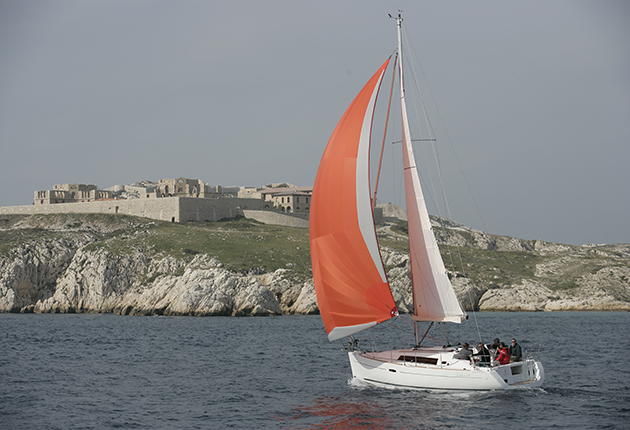
Boat owners need to carry VAT proof onboard post-Brexit
Skippers cruising to and from the UK need to prepare now for the ‘bureaucracy of sailing’ post-Brexit, the Cruising Association…

New guidance on Post-Brexit EU VAT status of second hand boats
Marine organisations in the UK and EU have come together to release guidance on the EU VAT status of second…

Returned Goods Relief conditions to be waived
The three year condition for Returned Goods Relief for recreational boats is to be dropped by the Government. It will…
I am sure boaters would not favour nominated ports of arrival and departure and therefore additional reporting requirements and procedures should be expected.
The RYA has long been aware that all movements of goods, including personal possessions, between the UK and the EU are treated in the same way as movements to and from the rest of the world.

Stuart Carruthers joined the RYA in 2005 and is their cruising manager
This means the movements are subject to customs processes, and import duties, including VAT, will be payable unless any relief applies.
In this case the relief in question is Returned Goods Relief (RGR) and is available for any goods returning to the UK, including privately owned pleasure craft, provided the conditions outlined in the legislation are met.
However, this does not address the fundamental point that HMRC is seeking to levy VAT on boats that have been legitimately bought either new or second hand and kept in the EU while we were all EU citizens.
We think this is unreasonable and we are lobbying hard so that UK owners can repatriate their boats to the UK, even if they have never been in the UK under their ownership and therefore have not been exported.
Under the VAT RGR rules, import VAT is only relieved if the importer and the exporter are the same person. Consequently, relief from import VAT is not available.
Can VAT-paid status on your boat be maintained in the UK and EU simultaneously?

A yacht which was located in the EU on 31 December 2020 and retained its EU VAT-paid status and has previously been located in the UK may be eligible for both EU and UK VAT paid status. Credit: Graham Snook/Yachting Monthly
Can VAT-paid status be maintained in the UK and EU simultaneously? For those who anticipate changing domicile between EU/UK this could be very useful, and would also allow a boat to be marketed to a wider market as VAT-paid.
I understand that EU rules would allow for an EU resident (i.e. an agent) to establish VAT-paid status for a boat owned by a resident of the UK, when it is located in EU waters.
Is this true, and does the same possibility exist for EU-owned boats in UK waters (providing they were previously EU VAT-paid, and have been in the UK in current ownership)?
Angus Abrams
It may be possible for some yachts to have the benefit of being eligible for both EU and UK VAT paid status.
An example of where this would be possible is a yacht which is located in the EU on 31 December 2020 (retaining EU VAT-paid status) and which has previously been located in the UK.
HMRC has made clear that if the yacht is returned to the UK before 30 June 2022 (or within the 3 year Returned Goods Relief (RGR) period if this runs until after 30 June 2022) the yacht would then be eligible to obtain UK VAT-paid status on return to the UK (provided that the RGR conditions are met (return within 3 years, no change of ownership or work to the vessel beyond running repairs)). [NOTE: This three year RGR condition has been dropped by the UK Government on 1 January 2022]
EU VAT paid status could then be regained if the yacht is returned to the EU within 3 years of leaving the EU (provided that the RGR conditions continue to be met).
Over time, it will be a challenge for a yacht to retain the benefit of both UK and EU VAT-paid status.
The yacht will need to visit both the EU and UK on a three-year cycle so that RGR conditions are satisfied and there may be declaration formalities associated with EU entry for non-EU established yacht owners.
When the yacht is offered for sale the owner will have the advantage of a wider market of potential buyers but upon completion of the sale there will need to be a choice made by the buyer as to the vessel’s location on sale as inevitably the eligibility for VAT-paid status in one of the territories will be lost.
Changes of domicile (as opposed to residence) are not relevant to this question.
RATS is not aware of the use of agents in the EU to obtain or retain EU VAT status.
Responding to the question: Are there cases where changing domicile from EU to UK can be considered as an exceptional circumstance allowing a one off transfer of VAT-paid assets between jurisdictions without being charged VAT?
The UK has Transfer of Residence relief from VAT when moving your permanent place of residence to the UK. This extends to pleasure craft.
To claim relief, you must satisfy all of the following criteria:
- you’ve been resident outside the UK for at least 12 consecutive months, prior to the date of moving to the UK
- you’re importing the goods within 12 months of coming to live in the UK
- you intend to use the goods in the UK for the same purpose they were used for prior to moving.
- The vessel must have been owned by you for at least 6 months prior to its importation to the UK.
You must apply in advance for the relief on form ToR1. See: https://www.gov.uk/guidance/application-for-transfer-of-residence-relief-tor1
Will my boat lose its EU VAT paid status if it leaves the EU?

EU Returned Goods Relief rules can only apply if the boat returns to the EU after no more than three years, and there has been no change of ownership or alterations to the vessel
A UK registered yacht with UK VAT Paid Status (paid in 2016) was moved to the EU before 31 Dec 2020 and has evidence of being in the EU on that date, and has now adopted EU VAT Paid Status.
The vessel is being sold by its UK owner to another UK owner, but the vessel is remaining in the EU (Greece).
If the new owners cruise only in the EU, they are fine, but they would like to cruise to Turkey, Croatia or other non-EU countries (due to the Schengnen 90-day limit) before returning to the EU (Greece), where the boat will be kept.
- If the boat leaves the EU, will it lose its EU VAT paid status and have to pay EU VAT?
- Does it matter to the EU or to Greek authorities where the vessel is registered (UK) in regards to VAT status?
- Presumably, if purchased with EU VAT status, the new owners would not be eligible for Returned Goods Relief if they brought the boat to the UK, and would need to pay UK VAT?
- The previous owner had a suit of sails made for the boat in the UK. These are being given to the new owners in the UK, who will then take the sails out to the boat. Will they need to pay EU VAT on the sails when they take them to the EU?
Simon Farmer
We are still in the early days after Brexit. The EU, governments and officials are still coming to terms with how to deal with various situations.
The answers below should be read subject to this general comment.
There is a particular difficulty in Greece where owners who have a VAT invoice in the name of a previous owner are encountering difficulties with establishing VAT paid status with local officials.
The CA is currently addressing this problem with Greek customs officials.
If the boat leaves the EU, will it lose its EU VAT paid status and have to pay EU VAT? Yes. Technically upon departing Greece the vessel is exported from the EU. It will have to rely on the EU Returned Goods Relief rules (RGR) upon its return (conditions: no more than three years away, no change of ownership or alterations to the vessel) in order to retain EU VAT paid status upon import.
Does it matter to the EU or to Greek authorities where the vessel is registered (UK) in regards to VAT status? It should not. Post Brexit it is quite likely that UK flagged vessels will be subject to greater scrutiny from the authorities of EU member states.
Presumably, if purchased with EU VAT status, the new owners would not be eligible for Returned Goods Relief if they brought the boat to the UK, and would need to pay UK VAT? Yes.
The previous owner had a suit of sails made for the boat in the UK. These are being given to the new owners in the UK, who will then take the sails out to the boat. Will they need to pay EU VAT on the sails when they take them to the EU? Technically they will have to pay EU VAT. This may or may not be enforced.
Have a Brexit VAT question for our experts? Email us at [email protected] and we will do our best to answer them.
This article was updated following the announcement that the three year condition on Returned Goods Relief is to be dropped by the UK Government

Cruisers Guide to Private Yachts & EU VAT Rules
Updated: Jun 7
If you're planning to sail the Mediterranean Sea or waters of European Union countries it's likely you'll have come across mentions of paying VAT tax on your yacht and things you import. As a foreigner especially this can be a little tricky to understand.
To help out I'm going to go through some of the key things to know about EU VAT and yachts, such as what qualifies a yacht to be exempt from VAT and how yacht goods can be imported VAT free. Wherever possible I've linked official EU documentation so you can refer to it yourself.
What is EU VAT?
EU VAT Paid Status
Having a Yacht in the EU Tax free
Importing Yacht in Transit Goods in the EU Tax Free
VAT Refunds

Before I begin just a little caveat that this information is general in nature meant to act as a helpful guide for cruisers. If you want specific advice for your situation it's best to consult a lawyer or tax specialist.
VAT, or Value Added Tax, is a broad consumer tax applied by countries in the European Union. By law the standard VAT rate must be at least 15%, but it does vary country to country. Here's a few examples to give you an idea of VAT rates.
Malta - 18%
France - 20%
Italy - 22%
Spain - 23%
Greece -24%
Croatia - 25%
EU VAT paid status
Yachts that sail in European Unions waters are considered VAT Paid or VAT Unpaid.
If a boat is VAT Paid it generally means that VAT was paid to a country in the European Union and that payment is still considered valid. There are a couple exceptions, for example some older boats that met the conditions to be considered VAT Paid when the VAT system was first introduced.
VAT Unpaid means that VAT has not been paid within the European Union or that the original EU VAT Paid status is no longer valid. Unfortunately there are certain circumstances where a boat can lose EU VAT Paid status and if you're planning to take your VAT Paid yacht out of EU waters for an extended period of time it's something you should look into.
EU VAT for yachts of European Union residents
People considered European Union residents who sail or buy their boats in EU waters are required to have VAT Paid status. It's a good idea to keep proof of this aboard to help prevent any issues with customs.
EU VAT for yachts of foreign residents
If you aren't a resident of the EU you can sail a VAT Paid or VAT Unpaid yacht within EU waters. To be able to sail a VAT Unpaid yacht you do need to meet the conditions for temporary importation relief, often referred to by cruisers as the 18 month tax exemption.
Having a yacht in the EU tax free
When you bring a yacht into the European Union as a non-EU resident it's possible to get an 18 month tax exemption. The conditions for this temporary importation relief are outlined in these two documents.
Article 250-253 of the Union Custom Code
Article 207-217 of the Customs Delegated Regulation 2015/2445
One of the key sections to read is Article 217(e) of the Customs Delegated Regulation which refers to the 18 month period allowed for private yachts to remain within the EU:
Article 217: Time-limits for discharge of the temporary admission procedure in the case of means of transport and containers
The discharge of the temporary admission procedure in the case of means of transport and containers shall take place within the following time; (e) for privately used means of sea and inland waterway transport: 18 months;
To reset this time period you need proof that the yacht has exited the European Union during the 18 month limit. Many people do this by taking the yacht to a non-EU country and getting marina and customs paperwork that proves the yacht was outside the EU. There's no minimum period of time you need to be outside EU waters.
Another key section is Article 212 of the Customs Delegated Regulation:
Article 212: Conditions for granting total relief from import duty for means of transport
3. Total relief from import duty shall be granted for means of road, rail, air, sea and inland waterway transport where they fulfil the following conditions: (a) they are registered outside the customs territory of the Union in the name of a person established outside that territory or ,where the means of transport are not registered, they are owned by a person established outside the customs territory of the Union; (b) they are used by a person established outside the customs territory of the Union, without prejudice to Articles 214, 215 and 216.
This section establishes two of the key eligibility criteria for temporary importation.
The person is established outside the Union
The vessel is registered outside the EU
The feedback we've received on Point 1 is it's usually interpreted as the person being a non-EU resident. As you can see it does not mention citizenship.
Point 2 is a VERY important section to know about if you are considering registering your boat to Poland . Poland is an EU country therefore having a Polish registration could, based on this legal document, make your boat liable for VAT even if the owner is a non-EU resident.
How to get the VAT exemption
In our experience there's nothing specific you need to do to start the exemption, it just starts when your yacht clears customs in the EU and it's up to you to retain records.
When we were in Italy it was commonplace for the financial police to come to the marina and check how long foreign yachts had been there. Due to some confusion regarding timing and a change of owners, one unfortunate couple discovered they only had days to relaunch their yacht or face a VAT tax bill from the Italian government. This shows how seriously the rules can be taken.
Note for EU citizens
If you're a citizen of an EU country but you reside elsewhere you may be able to claim the 18 month temporary importation. This is because the wording of the legislation refers specifically to residents, not citizens. Our suggestion is to make sure you have clear evidence of your status as a person established outside the Union in case Customs come asking questions.
Importing yacht in transit goods into the EU VAT free
Within the European Union it's generally possible for foreign yachts to import marine goods VAT free, but the process is country specific and can be very complicated.
Some countries also require you to use an agent. Croatia is one example so we used a yacht services company to bring a sea container of goods in VAT exempt, but for smaller items the tax was cheaper.
If you are trying to import goods tax free make sure your parcel is addressed to the yacht and labelled as "Marine Yacht Spares in Transit". For country specific information you could speak to the local Customs office or a customs broker in the area.
VAT refunds
In the EU there is a process through which you can get a VAT refund on certain goods on departure. We did this in Croatia and while it involved a bit of paperwork, the refund was absolutely worth it.
There are a few general criteria for the purchase and export.
The purchaser needs to be considered a visitor to the EU
VAT must have been paid at the time of purchase
The goods must leave the EU within 3 months of purchase
All goods must be accompanied by the purchaser when they leave the EU
There is no standard form across EU countries so you will need to search online, check the national tax office website, speak to Customs or liaise with the seller to find out what the process is in the country you're departing from.
Official sources
Here are some useful sources to refer to for EU VAT matters.
European Union - VAT Rules and Rates
European Commission - Frequently Asked Questions on: Rules for private boats
European Commission - Guide to VAT refund for visitors to the EU

- Living on a Boat
Recent Posts
How to Get Mail While Travelling the World
How to Get an EU Pet Passport for Your Dog
Safely Boosting HP with STEINBAUER Marine PowerModules
Omg I can't believe Polish registration can make you liable for VAT! Very important to know - we considered registering there and now I'm glad we didn't. Nobody told us that could be an issue.
We weren't aware either and it took quite a bit of investigation to get an answer. That's part of the reason we decided to share what we'd learned. To get a legal answer was going to cost thousands of euros so we delved into the legislation ourselves and that passage of the customs code seemed to make the risk pretty clear.
Basic Maintenance: Yanmar 4JH45 & 4JH57 marine diesel engine

Starlink for Boats - The Plans, Dishes & What it Costs For Cruisers

Tips for Visiting the Annapolis Sailboat Show in 2024

Sailing Holiday Packing List for Women - What to Take


EU VAT & Yachts Frequently Asked Questions
Introduction.
EU VAT is an important issue for owners sailing within the EU which can sometimes impact on the choice of yacht registration. We have put together this Frequently Asked Questions guide to answer some of the more common questions owners have about EU VAT and yachts:
1. What is the general rule about EU VAT and yachts?
All yachts sailing wihtin EU waters should be EU VAT paid unless the owner is able to qualify for a customs relief such as Temporary Admission or able to qualify for a VAT exemption such as the operation of the vessel for genuine commercial purposes. If in doubt - pay VAT.
2. I am an EU resident using my yacht for private pleasure use in the EU – does my yacht need to be EU VAT paid?
3. i am an eu resident using my yacht for private pleasure use in the eu – can i legally avoid the payment of vat by owning and/or registering my vessel in a non-eu jurisdiction.
No – the EU authorities ‘look through’ any non EU ownership and/or registration that a yacht may have and determine the liability to pay VAT on a yacht on the residence of the principal users of the vessel – in simple terms this is the person(s) who are enjoying the yacht.
4. Can I avoid paying VAT on my yacht by running it as a yacht charter business?
Yachts that are run as bona fide commercial businesses can in certain limited circumstances qualify for VAT exemption. We have produced a guide to some of the fiscal and legal considerations of yacht charter in the EU that includes a section concerning VAT exemption that can be found here on our website at the following link:
5. I am a non-EU resident using my yacht for private pleasure use in the EU – does my yacht need to be EU VAT paid?
Potentially you can keep the vessel within the EU without paying if you can comply with the EU rules for Temporary Admission. See our online guide here for further information:
6. Where do I pay VAT on my yacht?
For a new vessel purchased by a private person from an EU VAT registered supplier the basic rule is that VAT should be paid in the EU member state where it will be consumed (i.e. primarily used/kept). This treatment is defined by EU VAT rules relating to New Means of Transport that are designed to prevent private owners purchasing a yacht in an EU member state with a low VAT rate and then consuming the yacht in an EU member state with a higher rate of VAT. Under the New Means of Transport rules a new vessel is defined as any yacht that is over 7.5 metres in length overall and where less than 3 months has elapsed since its first entry into service or where it has travelled under its own power for less than 100 hours. For a vessel purchased by a private person that is not a New Means of Transport the basic rule is that VAT is paid in the EU member state of importation or in the EU member state where the vessel is located at the time of purchase.
7. Is it possible to defer and/or reduce the EU VAT that I pay on a private yacht through a leasing or rental scheme?
8. can a yacht be considered vat paid because of its age .
Under EU Single Market transitional arrangements certain yachts that were in use as private pleasure craft at the time of the creation of the EU single market are ‘deemed’ VAT paid under the Age Related Relief Scheme. For a yacht to benefit from this scheme it must be evidenced that the yacht was in use as a pleasure craft on 1st January 1985 AND moored in the EU on the 31st December 1992. As Austria, Finland and Sweden joined the Single Market two years later, the relevant dates are ‘ in use before 1st January 1987 AND moored in the EU on 31st December 1994. The position for countries subsequently acceding to the EU appears less clear in that there appears to have been no formal transitional arrangements put in place for yachts to become 'deemed' VAT paid. In general this is an area where we strongly recommend that owners should contact the relevant EU member state for detailed guidance before assuming that their vessel can be considered 'deemed' VAT paid.
9. Can an EU VAT paid yacht lose its VAT paid status?
Yes - an EU VAT paid yacht can lose its VAT paid status. Examples of how a yacht might lose its VAT paid status include:
- The VAT paid is reclaimed (i.e. where the owner was VAT registered and able to reclaim the VAT they paid on vessel purchase); or
- The vessel is sold whilst physically located outside the VAT territory of the EU; or
- The vessel is physically located outside the EU for more than three consecutive years.
In addition, if a vessel is substantially improved or modified without EU VAT having been paid on the improvements or modifications it may no longer be considered as fully VAT paid.
Yacht Registration
Yacht registries, yacht operation, yacht survey & certification, yacht agents, more information, oceanskies on instagram, oceanskies on twitter, guernsey office.
Oceanskies Limited Castle Emplacement St. Peter Port, Guernsey GY1 1AU Channel Islands, Great Britain
Oceanskies Support Services Limited International House Solent International Business Park George Curl Way Southampton SO18 2RZ Great Britain
Malta Office
Oceanskies (Malta) Limited Premiere Business Centre, Suite 1, Level 2 Constitution Street Mosta MST 1750 Malta
Email Crew: [email protected]
Email Registration: [email protected]
Call: +44 1481 711994
Oceanskies Limited is registered in Guernsey (company number 56102) | Registered Office: Castle Emplacement, St.Peter Port, Guernsey GY1 1AU, Channel Islands, Great Britain
Oceanskies Support Services Limited is registered in the United Kingdom (company number 14539527) | Registered Office: 80 Grove Lane, Holt, Norfolk, United Kingdom, NR25 6ED
Oceanskies Malta Limited is registered in Malta (company number C 77899) | Registered Office: Premiere Business Centre Suite 1, Level 2, Constitution Street, MOSTA, MST 1750, Malta
Terms & Conditions | Privacy Policy
- Articles and Guides
Importing Used Boats: Taxes, VAT and Everything You Need to Know
10th sep 2023 by samantha wilson.

If you’re planning on buying a used boat , it’s vital that you understand the boat tax laws that apply to it, both for the country that you’re buying it in and the country you want to keep it in, which might not be the same. In 2020, value added tax (VAT) on boats in Europe and the UK got more complicated when Brexit saw the UK leave the EU. It’s important not to underestimate the complexities of taxes on boats, especially on larger vessels. Boats aren’t static assets and so the tax rules can be complicated as they often differ between countries—with Brexit adding yet more complexity.
Here we take an in-depth look at what you need to know, and answer some of the questions we get asked most often.

Importing a Boat from the EU to the UK, or the UK to EU
Before Brexit, when a used boat had its VAT paid in any EU member state, then it had free movement between all those member states. So you could buy your boat in Spain, pay tax on it (or take possession of the VAT-paid status documents) and then take it to France, Italy or the UK. That is still the case for countries that are members of the EU, but Brexit meant that the UK was no longer part of the free movement, and those wanting to take their boats to the UK from an EU country might be liable to pay UK VAT again. Ultimately, buying a boat in Europe after Brexit got distinctly more complicated but as the waters settle, and new legislation is written, we’re getting a clearer picture.
Heading in the opposite direction, if you wanted to take a boat out of the UK and keep it in EU waters, you would be liable to pay VAT in the EU, unless you opt to use the Temporary Importation scheme (see below).
What is VAT on Boats in the UK?
Boats are considered the same as any other goods and are therefore taxed at 20% VAT in the UK. Boats are taxed when they’re bought as new vessels and will carry a VAT-paid status for the duration that they remain in the country (or in the case of the EU, in the region) that they were purchased in. So if you buy a used boat then it will likely have its VAT paid status and you aren’t liable to paying it again.
The difficulty lies when it comes time to take your boat from one country to another. Taking a boat out of the UK and moving it permanently to the EU, US, or any other country will likely require you paying taxes again. Traveling on your boat and spending a temporary amount of time as a visitor is permitted, so long as you keep within the time frame allowed. For the EU this is 18 months.
What is Temporary Importation (TI) and How Long Does It Last?
For British boat owners, this is one of the main benefits of Brexit. It means they can now keep a private boat in EU waters without paying the import VAT of 20% by using the Temporary Admission or Importation scheme. It allows them to keep their boat in the EU for up to 18 months without paying VAT on their vessel. Once the 18 months are up, a boat only needs to be taken out of EU waters for 24 hours before the VAT clock starts again for a further 18 months. A transit log and evidence of time spent outside of EU waters will need to be kept.
In reverse, it’s possible to request Temporary Admission in the UK if your boat is eligible:
- The boat must be registered outside of the UK;
- The owner must be resident outside of the UK;
- While the boat is in the UK it must be used by a non-UK resident;
- The boat must be identifiable by a hull or registration number.
Can you explain the Returned Goods Relief (RGR) and which boats are applicable for it?
Initially, the UK’s HMRC (His Majesty’s Revenue & Customs) announced that British-owned yachts located outside of UK waters on 31st December 2020—and which had been out for less than three years—fell under the Returned Goods Relief (RGR), meaning they could be re-imported back to the UK without incurring VAT again.
The good news is that before the end of that three-year window, HMRC VAT on boats policy was updated to announce that there will be no requirement to pay a second amount of UK VAT if vessels have been outside the UK for more than three years so long as they are being used for personal use. Boats are essentially being treated as ‘personal effects’ for their VAT status.

What is VAT on Boats in the EU?
Tax on boats purchased in EU states varies slightly depending on the country. In Spain for example it’s 21%, whereas in France it’s 20% and in Italy it’s 22%. Denmark holds one of the highest VAT rates at 25% while Greece is close with 24%. So depending on which country you purchase a new boat in, the yacht’s VAT will vary. VAT on second-hand boats is not usually required unless you don’t inherit the VAT-paid status documents when you buy the boat.
It’s important to know that a VAT-paid boat could lose its VAT-paid status if it’s sold outside the EU. If the owner, even if they’re an EU resident, wants to bring it back to the EU they will have to then pay VAT again.
What VAT evidence do I need to show EU or UK customs officials if asked?
Boat owners in the UK and EU will now need to carry evidence of VAT status onboard their vessels at all times in case they are asked for it by customs officials . So if you’re traveling from the UK over to France, for example, you will need to ensure you have the evidence with you at all times.
I’m British. Can I Buy a Vessel with Union Status and Keep It In the EU? Or Do I Need to Re-register it?
If the seller of the boat can show proof that VAT has already been paid in the EU, then the boat will retain the status of Free Movement on purchase, even if you choose to flag it to a UK registry. If you wish to import the boat into the UK, you will be liable to pay UK VAT. If you want to keep it in the EU then, as it already has Union status, you can do so. Essentially, as far as customs is concerned, the ownership of a vessel is not relevant, it is VAT paid Union status that is relevant.
What Are Taxes on Boats in the US?
In the United States, the tax picture is very different to the other side of the Atlantic. There is no Federal US sales tax applied to the purchase of boats, but instead there will be state taxes to pay which will vary from one state to another. There are three main taxes to pay on boats in the US:
- Sales Tax . This needs to be paid once in one’s state when you buy a new boat, and the rates vary depending on the state. There might also be a small local sales tax added on too. Not all states have sales tax, including Delaware and Rhode Island, whereas others have capped sales taxes such as North Caroline where tax is 3% but capped at $1,500 on boats. In Florida, the sales tax is 6% and has a cap of $18,000. In Texas it’s 6.25% with a cap of $18,750. States such as New York have a different system again, taxing boats 8.25% but only on the first $230,000.
- Use Tax . This comes into play when you keep or use your boat if it’s different to the state in which you paid the sales tax. So if you buy a boat in State A and pay sales tax, you would need to pay use tax if you chose to keep it or use it for long periods in State B. Having said that, not all counties and cities within a state charge a use tax. The Sales Tax Institute offers updated figures for all states.
- Personal Property Tax. Regardless of sales and use taxes, you will need to pay personal property tax on your boat each year in the same way you would for any other ‘movable asset’ such as an RV. Again rates vary considerably from one state and city to the next.
For more advice on Paperwork and Taxes When Buying a Boat check out our comprehensive guide.

How Can You Import a Boat from the US to the EU and UK?
Bringing a boat across the Atlantic to reside in either the EU or the UK takes some prior planning and it’s highly advisable to contact a marine tax specialist before embarking on the journey. As we’ve seen, in the EU foreign boats can take advantage of the Temporary Importation Scheme for up to 18 months. However, if they want to remain permanently they will need to pay VAT at the rate of the relevant EU country they’re in. If you’re importing a boat from the USA to the UK, you can also apply for Temporary Admission for up to 18 months if you comply with the eligibility requirements (see above).
Until 2022 the EU and UK had both imposed 25% customs tariffs on the import of US-origin yachts in response to tariffs imposed by the US on steel and aluminum. Thankfully a resolution between both the EU and UK with the US has seen that tariff now be lifted. Now the amount of import duty depends on the type and size of the boat and is between 1.7 and 2.7%.
How Can You Import a Boat from the UK or EU to the US?
Importing a boat into the United States is less costly than the other way around. The import duty on second hand boats is 1.5% of the value of the boat for motorboats and sailboats, and no sales tax needs to be repaid for boats coming into the US. To calculate the import duty you’ll need to supply the customs agent with a Pro-Forma Invoice, value survey, or purchase agreement.
Ask an Expert
When importing a boat, it’s always a good idea to get professional legal advice with regards to tax as it can get quite complicated, especially in the aftermath of Brexit. Always ensure you get all the paperwork when buying a used boat , including VAT-paid documents, and keep it in a safe place for when it comes time to sell it again or in the case that you choose to take it to another country or region permanently.
Written By: Samantha Wilson
Samantha Wilson has spent her entire life on and around boats, from tiny sailing dinghies all the way up to superyachts. She writes for many boating and yachting publications, top charter agencies, and some of the largest travel businesses in the industry, combining her knowledge and passion of boating, travel and writing to create topical, useful and engaging content.

More from: Samantha Wilson
Related Articles and Guides

25th Sep 2024
Rightboat Interview: Frank Bauguil on Leopard’s New Electric Catamaran

24th Sep 2024
The Rising Trend of More Women in Boating
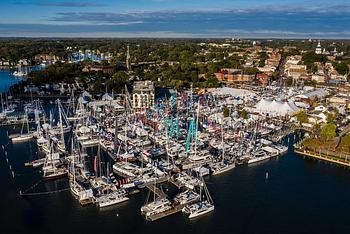
18th Aug 2024
20 Boat Shows Around the World to Visit in the Year Ahead

30th Jul 2024
Most Popular Trawlers, Cruisers & Conversions on Rightboat

- Explore Rightboat
- Boats for Sale
- Boating Articles
- Buyers Guide
- About RightBoat
- Sell Your Boat
- Boat Selling Advice
- All manufacturers
- All categories
- Are you a broker/dealer?
- Learn more about the Rightboat:HUB
Enter your email to keep up to date with the latest news
Join for free
Sign up now for free and discover how easy it is to keep up to date with THE latest boats for sale. Find your right boat, and tailor your voyage to finding your next boat.
Benefits of becoming a member:
- Set up tailored alerts
- Personalise your experience
- Download full specifications and broker details
- Keep tabs on your favourite boats
Are you a broker? Join as a Broker
Rightboat - join for free.
Do you have an account already? Login
Save this search
Save your search and receive new boats in your email..
You can unsubscribe from your alerts whenever you like. By pressing the button you accept the Legal Terms and conditions

EU VAT on Yachts Explained – Interview
What is the VAT treatment of the sale of a yacht?
Primarily it would be pertinent to assess whether the transaction falls within the scope of VAT, meaning that it is effectively supplied by a taxable person acting in the normal course of his business, takes place in the Community and a consideration is received in return for the supply rendered. Once falling within the scope of VAT the transaction should be analysed using the methodical approach.
Does the VAT treatment change if the yacht is sold second-hand?
Yes. In principle where a yacht is sold second-hand by a taxable person who had a right to deduct input VAT upon its acquisition then VAT must be charged on the current value of the yacht. On the other hand, where the sale of a second-hand yacht is being made by a person or entity that had no right to deduct the input VAT upon its acquisition, the transaction shall fall outside scope of EU VAT and hence no VAT is chargeable. Another, however improbable, scenario would be the transfer of a yacht made by a second-hand dealer, in which case the VAT would be charged only on the profit registered by the second-hand dealer.

Does the VAT treatment differ where the yacht is supplied in the EU or outside the EU?
Yes, definitely. Where a yacht is purchased outside the EU territorial waters, what is commonly referred to as “a sale on the high seas”, its entry into a Member State of the EU would be treated as an importation, with VAT to be paid to the Customs authority of the Member State in which the importation takes place, for the yacht to be released into free circulation. This, unless the payment of the import VAT is authorised to be deferred by the tax authority, generally in a situation where the yacht will be used to carry out commercial chartering operations that are subject to VAT.
On the other hand, if purchased within the EU, it could be a domestic supply (if the supply takes place within the territory of a Member State) or if supplied cross-border, an intra-Community transaction (meaning an exempt IC supply by the supplier in the Member State of origin and a taxable intra-Community acquisition by the purchaser in the Member State of destination). The purchaser has to be a taxable person identified for VAT in the Member State of destination. If the purchaser is not a taxable person, the cross-border supply could classify as a distance sale of goods, taxable in the Member State of the customer. Mention must also be made where a yacht is acquired as a “new means of transport”, which is a vessel exceeding 7.5 metres in length, not to be used as a commercial vessel, with not more than three months since first entry into service or with not more than one hundred hours in sail time. The VAT on the acquisition of a new means of transport is payable by the person making the acquisition in the Member State where the transport of the new means of transport to that person ends.
May the VAT chargeable on importation be deferred and what does that mean?
In principle, the importation of a yacht is taxable with the importer required to pay VAT to the Customs authorities in order for the yacht to be released for free circulation within the EU. However, at the discretion of the Commissioner for Revenue, the payment of VAT upon the importation of a yacht taking place in Malta can be deferred. In other words, the VAT is not paid as it is considered to have been deferred to the VAT return.
What are the conditions which would allow for a VAT deferment at importation in Malta? Is a bank guarantee always required?
In practice, to be considered for deferment the importation has to be carried out by a taxable person registered for VAT purposes in Malta who must show to the satisfaction of the Office of the Commissioner for Revenue that he will be using the imported yacht to carry out commercial chartering operations. Currently, Malta incorporated companies are not required to set up a bank guarantee, but foreign incorporated companies are required to set up a bank guarantee calculated at 0.75% of the import value of the yacht capped up to EUR 1 million.
What is meant when a yacht has a “VAT paid” status?
“VAT paid” status means that the VAT due on the yacht had been accounted for and paid to the Tax authority without the possibility of it being recovered or refunded. A Customs import payment receipt, an invoice or fiscal receipt issued by the seller (a taxable person), or a certificate issued by the Office of the Commissioner all bear testimony to the “VAT paid” status of a yacht and may become useful when the yacht enters the territory of another Member State and the VAT status of the yacht needs to be shown.
Can a yacht forfeit its “VAT paid” status?
In addition to serving as evidence that the VAT had been paid, the “VAT paid” status implies that the yacht is in free circulation within the territory of the EU Community, meaning that it can cross and enter the territorial waters of the respective Member States without being subjected to further Customs formalities, such as those at importation. The VAT paid and free circulation status are not perpetual and can be forfeited if the yacht leaves the territory of the EU and is then re-imported by a person other than the one who had exported it or where the yacht is taken out of the territory of the EU and re-enters into the EU beyond a period of thirty-six months even though it is imported by the same person who had exported it.
How is yacht chartering treated for VAT purposes?
In principle yacht chartering is treated as a taxable supply. An exemption technically applies where a yacht is chartered to another taxable person who would be using the yacht to himself carry out commercial chartering operations. As a matter of fact, the European Court of Justice in the Bacino case had ruled that this exemption shall not apply to services consisting of making a vessel available, for reward, with a crew, to natural persons for purposes of leisure travel on the high seas.
Are there any practical arrangements for the acquisition of yachts in Malta?
Yes, there are two, one being the Malta yacht leasing arrangements, that is based on the concept of “use and enjoyment” clause in the VAT Directive and which provides for the taxation of only that portion of the lease where the yacht is used and enjoyed within EU territorial waters. Conversely the use outside EU territorial waters is not taxed. The calculation of the taxable/exempt portions has to be made by the lessor on the basis of documentary and technological data of the yacht’s time spent within or outside the territory of the EU. The other practical arrangement, which is supported by a European Court of Justice decision in the Weald Leasing case, entails the long-term leasing of the yacht to the UBO. The lessor would be a company set up by a UBO with the UBO financing the purchase of the yacht by the company with the loan being set-off against the monthly instalments due by the UBO for the leasing of the yacht. The structure has the benefit of extending the payment of VAT relating to the yacht over a long period of time rather than having to pay the VAT at one go, as would have happened had the yacht been purchased outside of this arrangement under the normal VAT rules.
Meet us at the Monaco Yacht Show from the 27th to 29th September.
Book a meeting with us here.

Matthew Zampa
Founding partner.

Christabel Spiteri
Full name *, your company *, email address *, phone number *.
Please leave this field empty. I consent to Zampa Debattista storing my personal data provided for the sole purpose of responding to my enquiry and administering my request, as defined within the privacy policy .
Send Sending..
Previous Post VAT Newsletter - Q3 2022
Next post eu funding for digitalisation and energy efficiency investments.
Comments are closed.

- Student Hub
- Audit & Assurance
- Corporate Services
- Digital Consulting
- Financial Reporting
- Internal Audit
Quick Links
- Get in touch
- Privacy Policy
© 2024 Zampa Debattista.
crafted by BRND WGN
- History & Values
- ESG & Sustainability
- Meet the Team
- Engagements
- Engagement Quality
- ACCA Programme
- University Programme
- Internship Programme
Buying a boat : The myth of VAT
Pascal Schürmann
· 07.02.2022

Many owners believe that they have to be able to prove that their boat is EU-taxed in the event of a customs or police check. Owners of older or second-hand boats in particular regularly feel uneasy about this. Especially if there are no invoices or other receipts left to prove that VAT was once paid correctly.
Some potential buyers are even put off buying a used boat if the seller is unable to provide proof of purchase. But is this really a reason not to buy an otherwise perfect boat?
What can you do if there are no more invoices? And why is it no longer possible to invoke the fact that a ship was built before 1985 in the case of much older ships, meaning that there is supposedly no longer any obligation to provide evidence - keyword: Broom Directive? And finally: What happens if the ship has left German or even EU waters? How long are you allowed to sail far away - or even just in the Mediterranean, for example from Greece to Turkey - without getting into trouble with the tax certificate on your return?
Anyone looking for reliable answers to these and many other questions on the internet rarely comes across truly accurate information. On the contrary, there are a lot of half-truths circulating on the web, in social media, but also on the pavements or at the counters of club bars.

Specialising in recreational craft law, among other things Lawyer Benyamin H. K. Tanis from the Kiel law firm Tanis | von der Mosel reports that he is confronted almost daily with enquiries from unsure boat owners or buyers. After close consultation with several European authorities, he has compiled the most important facts on the most pressing questions in connection with the taxation of recreational boats on the following pages.
Most read articles

Every water sports enthusiast should know what this is all about by now: Somehow, every ship owner supposedly has to be able to prove whether their ship is properly taxed. This refers to "value added tax", or more precisely "sales tax" or "import sales tax". Especially when buying and selling used ships, this myth of taxation leads to great uncertainty for all parties involved. But what is it really about?
The most important thing first: For most of all privately traded ships in the EU, the issue is in fact irrelevant!
For boats that were built in the EU, have demonstrably never left the territory of the EU, or at least not for more than 3 years, and are sold from private to private, you do not need any further documentary evidence, such as the original invoice from the first buyer or similar. The current purchase contract with proof of payment (bank statement) together with some mooring and maintenance invoices from the last few years (issued in the EU) should always be sufficient as proof to the customs authorities. It may be advantageous to translate the documents into English so that customs officers in the Mediterranean can read them. That's all you need!
Even the term "EU VAT" is misleading here.
According to Directive 2006/112/EC on the common system of value added tax in the EU, only traders (economic operators according to Art. 9 of the Directive) are taxable persons. They collect the tax on their goods and services and pay it to the state. This means that no state in the EU can levy VAT on private individuals (especially not retrospectively). A significant exception is the so-called import sales tax. This is levied by the respective customs authorities of a country when goods are imported into the EU from third countries (non-EU).
How can I prove that the vessel has never travelled outside EU waters for more than three years?
In principle, you do not have to prove this, as all ships (goods) in the EU are presumed to be Union goods (Art. 153 I UCC). This means that if the inspecting customs authority has no concrete reason to assume that your ship has lost its Union character, then the legal presumption in the entire EU is in your favour. If necessary, the stay in EU waters can be proven, e.g. by means of berth or maintenance invoices with the corresponding date.
And when does customs have reason to assume that my ship has lost its Union character?
This can always be assumed if you are travelling at sea close to the respective sea customs border (EU external border or 12-mile zone). In fact, the customs authorities in the Mediterranean countries often carry out checks close to the EU's external borders. However, they do not check the VAT, but whether your ship is a Union product.
What does that mean again, "Union goods"?
Ships are goods that can be traded in the EU. In principle, goods may only be traded in the EU free of duties (customs duties) if they are so-called "Union goods" (Art. 5 No. 23 UCC). In simple terms, Union goods are all ships that have been completely manufactured in the EU. Non-EU goods are ships that have been manufactured outside the EU or have lost their status as Union goods due to an absence of more than three years from the EU.
And what is the significance of the original invoice?
With an original invoice (with VAT shown and proof of payment) you can prove the Union status of the ship, regardless of the place of manufacture. Nevertheless, the same applies here as for the loss of Union status.
What certificates do I need for ships that were not built in the EU?
Ships built outside the EU are also presumed to be Union goods (Art. 153 I UCC), provided that the ships are located in the territory of the Union. Here, too, you only need to provide evidence of the purchase and payment of the ship within the EU and, if necessary, provide information on the shipping area of the ship in order to counter the allegation of loss of status as Union goods due to absence from EU waters for more than three years. An accurately kept logbook can also be helpful here.
How can I prove the Union character of my vessel if I have actually left EU waters?
Before leaving EU waters, you can use the information sheet INF3 or the so-called simplified certificate of identity for this purpose. Both certificates are paper-based in the EU. This means that you must physically present your ship at the nearest customs office (presentation), bring the completed application form with you and submit the above-mentioned documents. The customs office will then certify that your ship was Union goods at the time of presentation. Unfortunately, completing the INF3 is hardly feasible for the layperson and many customs offices refuse to issue this information sheet if you cannot specify the actual destination (with an address in a third country) of the export. The simplified certificate of identity is more suitable. This can be issued by any German customs office, provided the ship is physically presented there and the required documents are submitted. This type of certificate is less common in other EU countries. Here it is advisable to ask for a subsequently issued T2L freight document. The documents described above must be presented in order to obtain both documents.
Can I simply apply for an official confirmation of the Union goods status of my pleasure craft prophylactically without wanting to leave EU waters with my vessel?
Unfortunately, this is not possible. Although we have already spoken to several EU customs authorities many times about the need for such proof, the legal situation here is clear: apart from the simplified certificate of identity (which is only issued by German customs for goods in Germany and for re-entry into Germany), all official EU documents require the indication of a place of export (with address) in a third country.
Are ships from Great Britain returned goods if I buy them there and bring them back to the EU?
No. With the UK's withdrawal from the EU, all ships of British owners located there have become third-country goods and have lost their status as Union goods. These ships would only be considered returned goods if EU citizens had exported the goods to the UK, but not if EU citizens acquire a ship in a non-EU country from a non-EU citizen.
What is the so-called intra-Community acquisition?
If you buy a new boat from a dealer in France and then bring it to Germany to use it here, the purchase may be exempt from VAT in France. However, this does not mean that you do not have to pay the tax. After the ship arrives in Germany, the owner is obliged to report to the relevant tax office with the purchase invoice in order to pay the tax here. As an exception, the tax debtor is not the seller but the buyer.
2 tips at the end:
1. it is always advisable to have a prepared package of documents ready on board with the purchase contract, proof of payment and the ship's whereabouts history.
2. if you are travelling in another EU country, it makes sense to have a certified translation of these documents so that customs officers in other languages can read everything.
For further questions please contact us: Tel. 0431 389 88 222, [email protected], www.ra-tanis.de
You will find much more useful information for boat buyers in the YACHT guides:
Which boat suits me? (click here)
What used boat buyers need to look out for (click here)
Model sales contract for used boats (click here)
Long-distance yacht: Tips for buying a boat (pdf)
Guide to buying second-hand (pdf)
Yacht Special Beginners (pdf)
Most read in category Yacht market

- Yacht Charter Fleet
VAT Changes for Yacht Charters in the Mediterranean 2021
- Share this on Facebook
- Share this on X
- Share via Email
By Editorial Team 9 February 2021
Changes in VAT regulations for yacht charters that start in France, Monaco or Italy have now come into effect in 2021.
If you are seeking to charter a yacht across the glittering Mediterranean this year, be aware of possible VAT changes that have come into effect in 2021 and may now apply to your trip.
The ever-evolving VAT regulations on superyacht charters in EU waters and beyond means keeping yourself up to date with developments now is key to preventing unexpected costs later. Below is our round-up of the most recent VAT protocol to keep in mind when chartering a yacht in 2021.

Whilst implementing new VAT regulations in France , Monaco and Italy were initially delayed due to the pandemic, 2021 sees this change. Now, all charters whose port of embarkation starts in these stated destinations will have VAT applied at their respective countries’ full VAT rate (and this will also pertain to any delivery or redelivery fees). The full VAT rate is applied irrespective of where the port of disembarkation is.
This means that for yacht charters that start on the tranquil shores of France or Monaco, you can expect a standard rate of 20% VAT (as well as any delivery or redelivery fees incurred).
It’s also worth remembering new COVID regulations for French waters have also come into effect this year. As of January 23 2021, all guests on board charters in the French Riviera need to provide a negative COVID result that’s been taken no less than 72 hours prior.

Meanwhile, if you intend to start your charter in Italy, a standard rate of 22% plus any delivery or redelivery fees will now apply, following changes to VAT laws for Italy charters from June 2020.
For any itineraries that involve journeying to France, Monaco and Italy, the same rules apply: VAT is charged at the rate of the origin of the charter.
For further advice about possible VAT implications and advice, contact your yacht broker .
More Yacht Information

63m Feadship 2011

95m Lurssen 2014

70m Feadship 2016

72m Tankoa Yachts 2018 / 2023

136m Lurssen 2019

95m Golden Yachts 2020
RELATED AREA GUIDES
View destinations guides, photo galleries & itineraries for areas related to this news article
- Mediterranean
- East Coast Italy
- South of France
RELATED STORIES
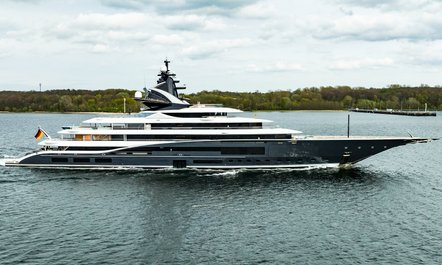
Previous Post
Mangusta superyacht NEOPRENE available for charter in the Bahamas
New motor yacht Stefania joins West Mediterranean charter fleet
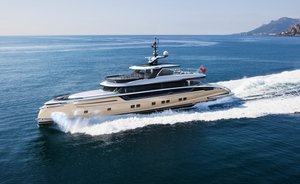
EDITOR'S PICK
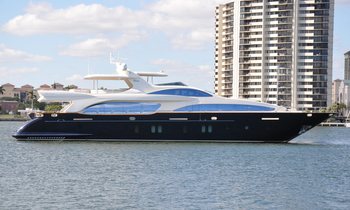
Latest News

27 September 2024

25 September 2024
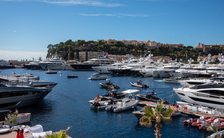
23 September 2024
- See All News
Yacht Reviews
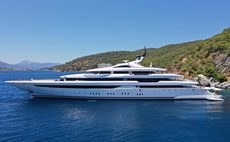
- See All Reviews

Charter Yacht of the week
Join our newsletter
Useful yacht charter news, latest yachts and expert advice, sent out every fortnight.
Please enter a valid e-mail
Thanks for subscribing
Featured Luxury Yachts for Charter
This is a small selection of the global luxury yacht charter fleet, with 3713 motor yachts, sail yachts, explorer yachts and catamarans to choose from including superyachts and megayachts, the world is your oyster. Why search for your ideal yacht charter vacation anywhere else?

136m | Lurssen
from $3,328,000 p/week ♦︎
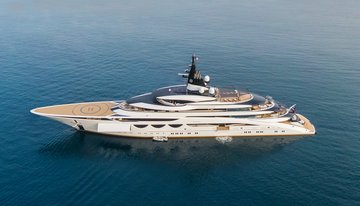
115m | Lurssen
from $2,874,000 p/week ♦︎
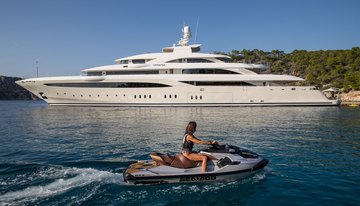
85m | Golden Yachts
from $1,001,000 p/week ♦︎
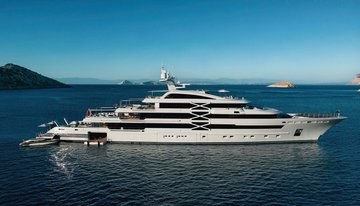
88m | Golden Yachts
from $1,222,000 p/week ♦︎
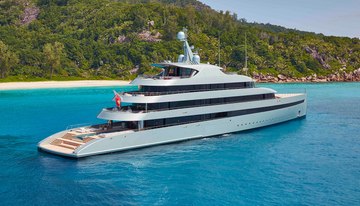
83m | Feadship
from $1,113,000 p/week ♦︎

93m | Feadship
from $1,554,000 p/week ♦︎

Maltese Falcon
88m | Perini Navi
from $490,000 p/week

122m | Lurssen
from $3,000,000 p/week
As Featured In
The YachtCharterFleet Difference
YachtCharterFleet makes it easy to find the yacht charter vacation that is right for you. We combine thousands of yacht listings with local destination information, sample itineraries and experiences to deliver the world's most comprehensive yacht charter website.
San Francisco
- Like us on Facebook
- Follow us on Twitter
- Follow us on Instagram
- Find us on LinkedIn
- Add My Yacht
- Affiliates & Partners
Popular Destinations & Events
- St Tropez Yacht Charter
- Monaco Yacht Charter
- St Barts Yacht Charter
- Greece Yacht Charter
- Mykonos Yacht Charter
- Caribbean Yacht Charter
Featured Charter Yachts
- Maltese Falcon Yacht Charter
- Wheels Yacht Charter
- Victorious Yacht Charter
- Andrea Yacht Charter
- Titania Yacht Charter
- Ahpo Yacht Charter
Receive our latest offers, trends and stories direct to your inbox.
Please enter a valid e-mail.
Thanks for subscribing.
Search for Yachts, Destinations, Events, News... everything related to Luxury Yachts for Charter.
Yachts in your shortlist
Yachting World
- Digital Edition

Post-Brexit VAT relief for UK yacht owners
- Helen Fretter
- December 20, 2021
Good news for UK yacht owners who've cruised in Europe post-Brexit as threat of 'double-whammy' VAT bill is removed.

The three-year time limit for ‘Returned Goods Relief’ (RGR), which saw UK yacht owners potentially facing large VAT bills when they brought their yachts back to the UK after cruising in Europe post-Brexit, been dropped.
The new legislation will come into force on 1 January, 2022.
Following the end of the Brexit transition period on 31 December 2020, HMRC had previously announced that UK-owned yachts would lose their VAT-paid status once they have been out of the UK for three years. This would make owners liable for a second VAT payment when they return, based on the boat’s current value.
HMRC later granted an extension to this RGR exemption, if the vessel returned to the UK before 30 June 2022 (or within the three year period if that runs later). Effectively, that gave many UK owners who’d taken their yachts abroad a deadline of this coming spring/summer in which to sail or ship their yachts back across Europe to the UK, or face a hefty VAT bill.
Brexit VAT limit dropped
Following lobbying from organisations including the RYA and the Cruising Association, the three year condition has now been dropped for boats that have previously been in the UK.
Vessels which were bought in the EU but have never been based in the UK under their current ownership, even if EU VAT-paid at the time of purchase, would still be liable for VAT on arrival in the UK.

Cruising in Europe: How to cope with Covid and Brexit issues
Cruising in Europe was once the comparatively simple option, negotiating weather systems in Biscay and overcrowded anchorages being the major…
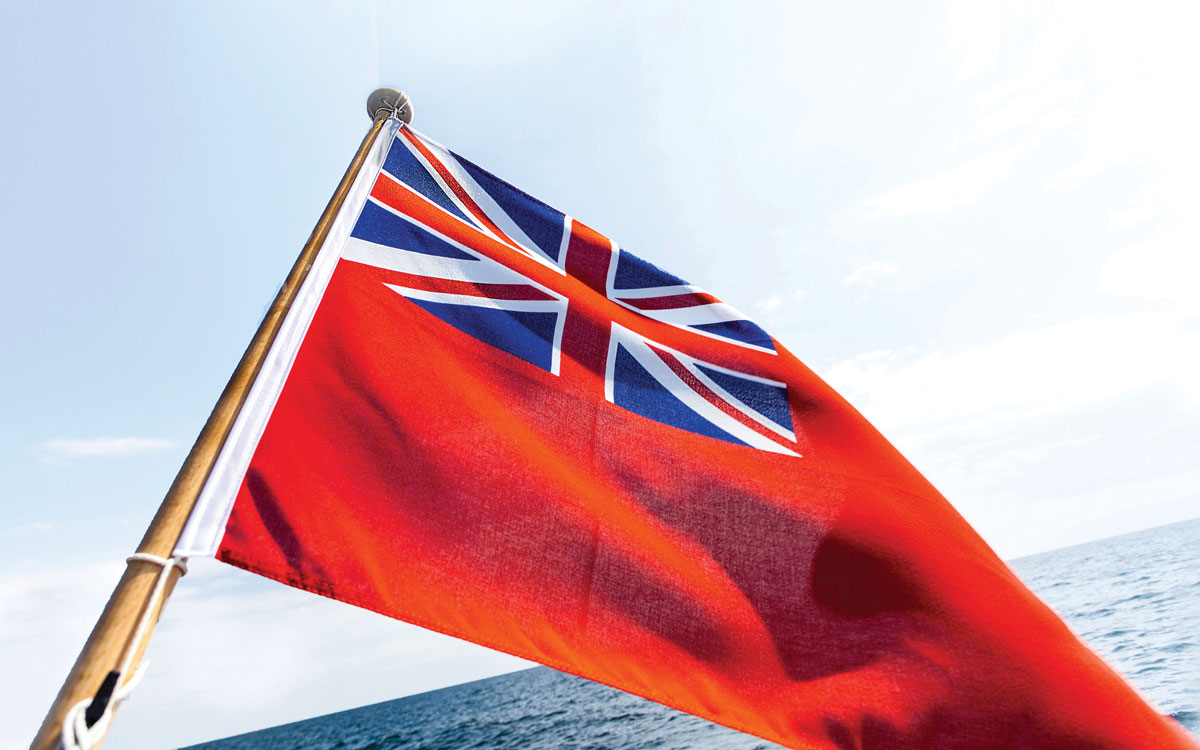
Post-Brexit sailing rules explained: Restrictions loom for 20,000 UK cruisers
There are three major areas of concern. For UK citizens an immediate impact will be losing the right to spend…
“The waiver from the three-year condition for boats that have been based in the UK under their current ownership at some point means that VAT will not be recharged on their return to the UK regardless of timing.
“However, we are fully aware that there are those who own boats legitimately bought and kept in the EU when the UK was a member state which have never been in the UK. We continue to press the government to recognise that export for these boats took place at the end of the Transition Period at 2300UTC on 31 December 2020 when in effect the UK exported itself from the EU.
“As such, the government should accept that the export/import condition for Returned Goods Relief is deemed to have been met and therefore the three-year condition should terminate on 31 December 2023.”
Post-Brexit challenges
The announcement will come as a great relief to many UK yacht owners, particularly those with boats in Europe who face an endlessly changing jigsaw of Covid travel legislations across different countries, and the 90-day Schengen Area limitation to bring a yacht back.
It will, however, come as too late for those who have already sold yachts or significantly altered their plans to avoid the VAT payment.
“Back in September last year, 2020, just before Brexit took effect, HMRC announced a change [from previous guidance] and said that British-owned boats that have never been in the UK would not be able to claim RGR if they returned to the UK after Brexit,” explained Robin Baron, chair of the Cruising Association’s Regulations and Technical Services Group.
“By then it was the end of the season, you’ve probably got a month more of sailing, and so people didn’t really have an opportunity to move their boats. We had one member who went out to Germany to commission his boat in December, and ended up bringing it back down the North Sea in the middle of winter.
“We’ve also got lots of people who are part way through bringing their boat back from the eastern Med or Greece. They don’t now need to come back to the UK for their VAT status, so they can turn tail and go back to the Med.
“Our discussions with HM Treasury and HMRC over boats that have never been in the UK are continuing.”
The revised guidance will be published on gov.uk For more detailed interpretation and guidance see theca.org.uk and rya.org.uk

Is it possible to finance a yacht purchase in the EU
14 October 2015
In most cases, you need to be a fiscal resident in the EU to benefit from a European bank (or leasing company) financing your boat . Whether it’s a new or pre-owned yacht for sale . You may also be required to own commercial activity , assets (property) and a bank account within the EU so that the financial institution is comfortable with your credit guarantees.
Generally, European financial institutions with a nautical program will propose a leasing solution, where you actually rent the yacht for up to 10-12 years with a purchase option at the end. This popular way of financing a yacht will require a 25 to 50% down-payment and the balance will be paid with monthly instalments. You will also benefit from VAT advantages, generally cut in half.
If you do not match these requirements, Allied Yachting may be able to provide alternative yacht finance solutions through different boat financing partners but you should also search for alternative banking solutions in your country of origin or just have your broker negotiate a great cash deal for you.
Boat leasing is a great way to finance a boat and indeed the most popular form of boat financing. With this solution of marine finance, you can make significant VAT savings, on both new and used boats. The schemes offered on the market are recognized marine finance schemes for boats and yachts of all sizes, established by the French, Italian and other European governments.
The Italian and French leasing finance schemes have been established for many years in Europe, and provide a legitimate and safe way to obtain credit and reduce the VAT on your boat purchase. Some other benefits can be found by several clients by not showing wealth and ownership, only the leasing of a boat.
Boat Finance – Yacht Leasing
If you are using your boat in EU waters, including the UK, then this simple form of yacht leasing finance can save you VAT. The process is very simple:
You choose your yacht, boat, or superyacht and negotiate a final price with the seller, boat dealer or manufacturer. This includes all the extras that you would like as part of the overall specification. The deposit is then paid. The leasing company (or bank) then arranges to buy the boat and the balance is financed by them, with the vessel then being leased to you for the agreed period at a contracted rate per month (or quarter). Reduced rates of VAT are paid on these instalments according to the type of boat, its size, navigation area and the type of scheme (Italian or French). At the end of the leasing contract you have the option to buy the vessel, or simply return her to the bank. The residual values vary from lender to lender and currently range between 1% and 5%.
Boat Loans – Chartering
If the ownership of your boat is through a commercial or chartering company, then yacht financing using a lease makes even more sense, as most lenders will offer VAT free leasing which can save considerably on costs. However, it must be emphasized that this is for legitimate chartering companies only, which are exclusively those actually running a rental business and with full-time crews.
For private owners, part-time chartering is permitted within the terms of the lease.
Italian and French Leasing Programs
The two main marine finance leasing programs available on the market are the most popular, namely the French and the Italian. We can also propose the Maltese and Madeira lease options, but we have to study the feasibility of your application before we submit it. The Italian and French programs offer slightly different benefits, depending on the size and class of the vessel, with the first being based on the type and size of the vessel, whilst the second is based on Class. In principle the larger the boat, then the greater the savings in VAT, and for yachts over 24 meters, it is possible to reduce the VAT to 6%.
Please note that the minimum deposit for leasing in excess of 5 years is 30%.
There is no upper limit on the size of boats benefiting from finance using a lease, so boat finance for even mega and superyachts is possible given the right qualifications.
Yacht Leasing (French or Italian) – Key Points
- The minimum value of boat (Ex-VAT): € 250,000
- No maximum value
- Minimum deposit 25%
- Maximum deposit 50%
- Contract terms from 3 to 8 years, sometimes up to 10/12 years
- Residual values from 1% to 5%
- The contract can be made through either private or company ownership
- Available for both new and used boat finance, please verify the age of boats qualifying
- Registration in most EU countries and flags, including UK flag
- Chartering is permitted under the terms of the lease
- VAT-free leasing available for chartering companies
- Avoids showing wealth or ownership
- Non-disclosure and confidentiality towards each client
- Leasing contracts are frequently possible to recover by future buyers, and even re-negotiable
Our Services
At Allied Yachting, we will direct you to the appropriate bank or leasing company partner capable of financing your yacht and we will help you not only to negotiate the best possible marine finance conditions but also to adequately fill-in and submit your application.
Our yacht listings:
- New Yachts for Sale
- Pre-owned Yachts for Sale
- Yachts for Charter
You might also like
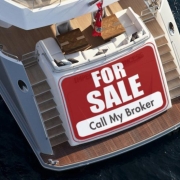
Yachting Consultants
Sale-Charter-Brokerage-Management
Headquarters:
34 Rue Caffarelli 06000 Nice, France
Front Office:
Boulevard de La Croisette – Port Canto 06400 Cannes, France
T.: +33 493 43 82 83 Email: [email protected] Website: www.alliedyachting.com

VAT Implications in the European Union
If you wish to use a private yacht within European Union (EU) waters you must be aware of the various Value Added Tax (VAT) implications. In principle, all yachts owned or used by EU residents must have their VAT paid before they may enter EU waters. An exemption is possible only for yachts that are owned by non-EU residents and used temporarily in EU waters by a non EU resident (for example a company incorporated outside the EU or an individual who normally lives outside the EU).
Important points to be considered for determining whether or not VAT is payable are the place of purchase of the yacht, where the yacht will be used, who is the beneficial owner of the yacht, whether the yacht will be chartered out to third parties, and whether the yacht will be used by EU residents.
International Ship Registries works closely together with VAT specialists to provide advice and facilities for the mitigation, deferment or even possible avoidance of VAT on private yachts as well as commercial vessels. Our VAT specialists will be glad to assist you in deciding whether you need to pay VAT on your newly purchased vessel. We are also be able to explain to you the various possibilities that may be available to mitigate, defer or avoid the payment of VAT. Furthermore, the application of VAT rules is far from uniform between different EU member states and it is highly advisable to take professional advice before a yacht is purchased or used by a EU resident.
Through several carefully researched and structured programmes, qualifying European Union residents may be able save the VAT upon acquisition of their yachts maintained and navigated in EU waters. There are a number of such schemes available to reduce or completely avoid payment of VAT. These include registration of the yacht as a commercial vessel and various charter arrangements.
In general, however, only in relatively few cases will it actually be advisable to consider such schemes, namely in the case of genuine charter arrangements. VAT rates throughout the EU vary substantially (from 13% in Madeira/Portugal to more than 20% in most other EU countries). It may therefore be advantageous to pay VAT in a country with a lower rate of VAT, and in some countries there are cash flow advantages due to the way VAT is levied. As an example, if an Isle of Man company acquires a vessel for the purpose of chartering the vessel, the yacht need not sail to the Isle of Man and VAT due on acquisition will not need to be paid up, the payment and repayment being made on an accounting basis only.

Articles VAT on Superyacht Charters: Everything you need to know
When browsing the world’s finest yachts and destinations for your next luxury vacation, an often-overlooked consideration is charter taxes, namely Value Added Tax (VAT).
A complex and ever-changing discipline, VAT on superyacht charters around the world can represent quite the regulatory hurdle.
With decades of experience and a solid understanding of the intricacies involved in yacht charter taxes, the Ocean Independence Team continues to take extensive professional advice from Fiscal Representatives. Regularly attending meetings regarding the most up to date VAT laws, we ensure charterers are well informed regarding the latest regulations.
To clarify this subject for those considering a luxury yacht charter, below we present a round-up of the latest protocols regarding VAT on superyacht charters and its application across the EU and beyond.
We have made every effort to ensure the information provided is accurate as of the publication date (July 2023). However, since new regulations can go into effect at short notice, should you have any questions regarding specific itineraries, please contact your Ocean Independence Charter Consultant.
YACHT CHARTER TAX FAQS
How is vat applied to a superyacht charter.
In general, VAT is applied to the full charter fee and then determined by the VAT rate of country in which the charter begins. For example, if your charter starts in France and ends in Italy, you will pay VAT to the French authorities. VAT is also, subject to location, applied to delivery and/or redelivery fees.
Although this may sound like a somewhat confusing and lengthy process, your Ocean Independence Charter Consultant will guide you through every step of the booking process. VAT amounts due will be clearly presented on page one of your MYBA Charter Agreement with further explanation of the VAT applied to your charter in the ‘Special Conditions’ or a VAT Addendum attached to the agreement.
WHEN DO I PAY THE VAT?
VAT is paid in your final instalment of charter fees due, usually one month prior to the start of the charter and held in the stakeholder’s client account before being dispersed to the Fiscal Agent.
Put simply, after you have signed the charter contract, but prior to boarding, you will be required to make a number of payments which include the charter fee, the Advanced Provisioning Allowance (APA), VAT, and sometimes also (re)delivery fees or security deposits.
But rest assured, there are no last-minute surprises. All payments are pre-empted and specified in your charter agreement. We strive to make the process of securing your superyacht charter a seamless, stress-free experience. Your only task is to look forward to an unforgettable journey, knowing all financial aspects are securely managed and arranged in advance.
CAN I QUALIFY FOR REDUCED VAT?
In some cases, time spent cruising outside of EU waters during your charter can be proportionately reduced with any excess VAT reimbursed at the end of the charter. However, for small amounts of time spent outside EU waters, any VAT advantage may be negligible once fuel costs are taken into account.
VAT RATES FOR CHARTERS IN EUROPE

FRANCE (INCLUDING MONACO) AND ITALY
January 2020 signalled significant changes in the ways that VAT was applied to superyacht charters (although there were some delays in putting these into effect due to the Covid-19 pandemic). The current situation for charters starting in Italy, France and Monaco is that VAT is now applied at the country’s full VAT rate at the origin of the charter, i.e. the port of embarkation.
This VAT rate is applicable regardless of which country your port of disembarkation falls in. VAT is also applied to any delivery or redelivery fees.
For itineraries including both France and Italy, VAT will always be applied at the rate of the country of origin, i.e. if starting in France or Monaco – 20%, if starting in Italy – 22%.
FRANCE AND MONACO
In France and Monaco, the standard rate of 20% French VAT is due on charters, and (re)delivery fees originating in France and in Monaco, regardless of the port of disembarkation.
For itineraries including significant time spent cruising outside EU waters, your Captain will calculate the actual hours in international waters and the tax is proportionately reduced. At the end of the charter, you will be reimbursed via your Charter Consultant.
As of June 2020, modifications to Italy’s Value Added Tax (VAT) regulation were implemented, enforcing a standard rate of 22%. VAT in Italy is required to be paid on the charter fee along with any fees for delivery/redelivery that originate in Italy, irrespective of the port of departure.
The previously available lower VAT rate of 6.6% for itineraries entering international waters is no longer applicable. However, as with France, for any itineraries including significant time outside EU waters, the taxable base is reduced, and a reimbursement of VAT paid may apply following the conclusion of the charter.
For all charters starting in Spain, VAT is set at a standard rate of 21% of the charter fee. There is no reduction of VAT if cruising outside EU territorial waters (i.e. more than 12 nautical miles offshore) during the charter period. However, if starting outside the EU and cruising into Spain, VAT is only due on the number of days spent in Spanish waters.
Charters beginning in Croatia incur a VAT rate of 13% on the charter fee. However, VAT is not due on delivery and redelivery fees. If your charter begins outside of EU waters, Croatian VAT is due on a pro-rata basis, considering the number of days spent in Croatian waters.
Every yacht cruising in Greece is required to possess a Greek charter licence. And while the base rate of VAT is 24%, in most cases this is reduced by 50-60% depending on your itinerary.
If you are planning to book a yacht charter in Greece or have already signed the charter contract and want to know how your itinerary will affect the amount of VAT you will have to pay, please don’t hesitate to get in touch with your Ocean Independence Charter Consultant.
One of the most recent changes to VAT in Europe, as of summer 2023, Turkey has increased its VAT rate from 18% to 20%. For charters in Turkey, on Turkish-flagged commercial vessels, 20% VAT is applied to the charter fee.
For foreign flagged commercial vessels chartering in Turkey VAT is 0%. But it’s essential to note that while vessels under 39 metres are required to purchase a cruising permit, it is mandatory for yachts over 39 metres to obtain a Turkish Charter Licence.
As costs may vary depending on the size of your charter yacht and the length of your stay, should you require clarification or detailed information on the cost of a cruising permit for your chosen yacht and itinerary, your Ocean Independence Charter Consultant is readily available to assist.
In Montenegro VAT is 0% so you will not incur any VAT charges while chartering a superyacht here. However, if your itinerary extends into Croatia, you will be required to pay Croatia’s VAT rate of 13%, levied pro rata for every day you stay in Croatian waters.
VAT ON YACHT CHARTERS IN THE BAHAMAS
While the VAT rate for superyacht charters in most of the Caribbean is currently 0%, the Bahamas introduced a 10% VAT from the 1st of July 2022. As a result, foreign-flagged yachts chartering in Bahamian waters are now required to pay this rate on the charter fee. Additionally, July 2023 saw another significant increase in the cost of charter licensing (paid by yacht owners annually).
Prior to the recent introduction of this VAT rate, Bahamas yacht charters had a mandatory 4% port tax. This tax remains in place, resulting in a total tax rate of 14% of the charter fee.

Navigating VAT regulations for your luxury superyacht charter can seem complex, but at Ocean Independence, we simplify this process, ensuring a smooth and enjoyable experience from booking to boarding, and beyond.
For any queries, or more information regarding VAT regulations and yacht charter taxes, please don’t hesitate to contact us using the enquiry form below. Or, to explore our entire list of luxury yachts for charter around the globe, click here.
Related Articles

In Conversation With The Owner Of Sailing Yacht WHIMSY

Best Places to Travel in September on a Superyacht Charter

The SLYDER 80: A Conversation With SLYDER Catamarans CEO Markus Kuhner

Celebrating Chris Collins And The Successful Delivery Of Mulder Thirtysix Q43
Need help or advice.
The yachting journey can be complex with many decisions to be made. Get in touch with Ocean Independence, and one of our specialist consultants will help you make the right choices.
As a truly global company with 15 offices worldwide, we’re available 24/7 to help with any enquiries.

Stay in the know
Sign up to our newsletter to find out about all things yachting, including new listings, global events and the latest news in the industry.
Follow us on socials
Enter a search term below to search our website.
- Work & Careers
- Life & Arts
European diplomats lobby UK over plans to charge VAT on private education
Keep abreast of significant corporate, financial and political developments around the world. Stay informed and spot emerging risks and opportunities with independent global reporting, expert commentary and analysis you can trust.
Try unlimited access Only $1 for 4 weeks
- Then $75 per month
- New customers only
- Cancel anytime during your trial
Keep reading for $1
Explore our subscriptions
Find the plan that suits you best.
Professional
Premium access for businesses and educational institutions.
- Get Started
Check if your university or organisation offers FT membership to read for free.
- PRODUCTS PRODUCTS
CORSAIR: EXPLORER
Browse how-to guides, support articles, and other content related to CORSAIR products.
CORSAIR FOR BUSINESS
Trust the precision engineering and performance innovation that has made Corsair an industry leader for decades. Corsair for Business provides specialized hardware solutions for your industry. Want in?
CORSAIR iCUE SOFTWARE
Control and synchronize RGB lighting, adjust fan speeds, and monitor CPU and coolant temperatures using CORSAIR’s iCUE software.
VENGEANCE® 32GB (2x16GB) DDR5 DRAM 6000MT/s CL28 Memory Kit — Black
Memory tested speed, memory color, memory size, memory tested speed (up to), cas latency, memory tested speed disclaimer.
* Requires overclocking/PC BIOS adjustments. Maximum speed and performance depend on system components, including motherboard and CPU.
- Package Contents
VENGEANCE DDR5
Ddr5 memory, welcome to cutting edge performance.
Push the limits of your system like never-before with DDR5 memory, unlocking even faster frequencies, greater capacities, and better performance.
OVER 5000MH z SPEED
Do it all, and do it faster.
In the many-core era, the unprecedented processing speed of DDR5 ensures your high-end CPU gets data quickly with ease. Whether you are gaming, creating content, opening 100 tabs, or multi-tasking, your PC can power through complex tasks faster than ever before.

EASIER THAN EVER
Onboard voltage regulation.
You have the power and the control. Built-in voltage regulation with iCUE software control makes for easier, finely-tuned output that provides more stable overclocking than ever.
OVERCLOCK IT YOUR WAY
Custom intel ® xmp 3.0 profiles.
Ditch the tedious process of manually adjusting your performance settings each time when you save your own XMP profiles through iCUE.
Easily customize and tailor your setting profiles by app or task for greater efficiency.
*Coming later in 2023 to select motherboards

DO MORE WITH i CUE
Powerful corsair software.
Whether you monitor real-time temperature, frequency readings, onboard voltage regulation, or custom XMP profiles, the powerful CORSAIR iCUE software enables you to do it all conveniently from single intuitive interface.
EVERYTHING YOU NEED TO TAKE ON THE WORLD

Dedicated Volume and Multimedia Controls
For direct control over your audio without having to interrupt your game.

Six Dedicated Macro Keys
Fully programmable with complex macros and key remaps for an in-game advantage.

Detachable Palm Rest
Soft rubber palm rest reduces stress on your wrists so you can play longer in comfort.

Quiet and Responsive Keys
For comfortable typing during both work and play.

Windows Key Lock Mode
Ensures you’ll never accidentally interrupt your game at critical moments.

Anti-Ghosting with Selective Key Rollover
So your inputs register in-game even with simultaneous key presses.

Stream Deck Software Integration
Program special streaming commands through Elgato Stream Deck Software.
CONTINUING A LEGACY OF PERFORMANCE

Compact Form-Factor
Low clearance ensures wide compatibility with nearly any DDR5 build.
Hand-Sorted, Tightly-Screened Memory Chips
Ensures consistent high-frequency performance with aggressive timing options.
Solid Aluminum Heatspreader
Conducts heat away from your memory quickly, with refined VENGEANCE styling to fit the look of modern systems.
High-Performance PCB
Guarantees signal quality and stability for superior overclocking ability.
WIDE COMPATIBILITY
Optimized for the latest Intel ® DDR5 motherboards.
LIMITED LIFETIME WARRANTY
For complete peace of mind and years of worry-free performance.
| Memory Size | 16GB |
|---|---|
| Tested Latency | 28-36-36-96 |
| Tested Voltage | 1.40V |
| SPD Voltage | 1.1V |
| Speed Rating | PC5-48000 (DDR5-6000) |
| SPD Speed | 4800MHz |
| SPD Latency | 40-40-40-77 |
| Performance Profile | XMP 3.0 |
| Package Memory Format | DIMM |
| Memory Series | VENGEANCE DDR5 |
| Weight | 0.13 |
|---|---|
| Heat Spreader | Aluminum |
| Fan Included | No |
| Memory Color | BLACK |
| Memory Compatibility | Intel 600 Series,Intel 700 Series |
| Memory Detail Compatibility | Intel 600 Series,Intel 700 Series |
| Memory Type | DDR5 |
| Power Draw | Overclock PMIC |

COMMENTS
All privately owned vessels used by EU residents within the EU are required to pay a Value Added Tax (VAT), which can add a hefty 20 percent to your sales price. And that's just the beginning of all the details to consider. Above: VAT on yachts can add a hefty amount to the price tag. Ed Kukla photo.
vat tax on a yacht in the european union. All EU residents who own a boat and use the boat within the EU are required to pay a 20 % Value Added Tax (VAT), which will hike up the sales price considerably. It's important not to underestimate the complexity of VAT on vessels, especially for higher value yachts. As a matter of course when you ...
An EU national may establish residence outside the EU VAT zone, for example BVI or Gibraltar, and thereby avail himself of the temporary importation relief from VAT. ... Non-EU vessels. A VAT paid yacht will encounter no difficulties in EU waters provided the vessel is not chartered. Pleasure yachts built pre-1985 and in EU waters on 31st ...
Value Added Tax (VAT) is a tax scheme that was established by the EU. ... It should be noted that the Channel Islands and Gibraltar are considered outside of the EU VAT area but the Isle of Man is. A yacht owned by an EU resident or corporate body has the right to free movement throughout the EU provided VAT has been paid on that boat in an EU ...
1. What is the general guideline for yachts and EU VAT? Unless the owner is eligible for a customs relief, such as Temporary Admission, or is eligible for a VAT exemption, such as the operation of the vessel for legitimate commercial purposes, all yachts sailing within EU waters shall pay EU VAT. Pay VAT if unsure. 2.
As with yachts built after 1985, an original invoice showing VAT payment to an EU authority is the preferred evidence of VAT payment (if it is still available). Once in "free circulation" a yacht built before 1 January 1985 is treated as any other boat in connection with the Brexit related changes in VAT status arising from location on 31 ...
t leave the EU.How long can the yacht stay in the EU?Normally, you. can use the vessel in the EU for one and a half years. In technical terms, the period for discharge for privately used m. ans of sea and inland waterway transport is 18 months. This is laid down in Article 217(e) of the C. ission Delegated Regulation (EU) 2015/2446 (UCC-DA).
VAT, or Value Added Tax, is a broad consumer tax applied by countries in the European Union. By law the standard VAT rate must be at least 15%, but it does vary country to country. Here's a few examples to give you an idea of VAT rates. Malta - 18%. France - 20%.
Double VAT, the Schengen zone, the 180-day rule; the list of considerations when considering buying a yacht in Europe is long and, in some cases, very complex. Crucial to understanding is having a ...
Introduction. EU VAT is an important issue for owners sailing within the EU which can sometimes impact on the choice of yacht registration. We have put together this Frequently Asked Questions guide to answer some of the more common questions owners have about EU VAT and yachts: 1. What is the general rule about EU VAT and yachts?
VAT and Yachts: The Essential Guide. When buying a second-hand boat in the EU, or importing a vessel into a member state, the issue of VAT is an important one to consider. Rupert Holmes outlines the considerations - and the potential pitfalls. All privately owned vessels used by EU residents within the EU are required to be VAT paid.
Up to that point, they considered the supplies, fuel, charters, and even the hull of commercial yachts engaged in trade exempt from VAT. At the end of 2010, though, the European Court of Justice determined that a yacht chartered by a customer for leisure is no longer a VAT-exempt transaction. Consequently, VAT on superyacht charters of less ...
Tax on boats purchased in EU states varies slightly depending on the country. In Spain for example it's 21%, whereas in France it's 20% and in Italy it's 22%. Denmark holds one of the highest VAT rates at 25% while Greece is close with 24%. So depending on which country you purchase a new boat in, the yacht's VAT will vary.
Yes, there are two, one being the Malta yacht leasing arrangements, that is based on the concept of "use and enjoyment" clause in the VAT Directive and which provides for the taxation of only that portion of the lease where the yacht is used and enjoyed within EU territorial waters. Conversely the use outside EU territorial waters is not taxed.
If a yacht with VAT paid status is exported from the EU it will usually qualify for relief from having to pay VAT again if it is imported back into the EU within 3 years of its export, provided ...
Many owners believe that they have to be able to prove that their boat is EU-taxed in the event of a customs or police check. Owners of older or second-hand boats in particular regularly feel uneasy about this. Especially if there are no invoices or other receipts left to prove that VAT was once paid correctly.
To put it simple, at the moment, a non-EU resident or entity can't be legally forced to pay for the EU Value Added Tax. However, if the yacht is permanently moored in the EU, it will usually be necessary for VAT to be paid on the purchase of the yacht or its importation into the EU, to benefit from free circulation within the EU (roughly 20% /- of the purchase price).
The ever-evolving VAT regulations on superyacht charters in EU waters and beyond means keeping yourself up to date with developments now is key to preventing unexpected costs later. Below is our round-up of the most recent VAT protocol to keep in mind when chartering a yacht in 2021.
Good news for UK yacht owners who've cruised in Europe post-Brexit as threat of 'double-whammy' VAT bill is removed. The three-year time limit for 'Returned Goods Relief' (RGR), which saw UK ...
This popular way of financing a yacht will require a 25 to 50% down-payment and the balance will be paid with monthly instalments. You will also benefit from VAT advantages, generally cut in half. If you do not match these requirements, Allied Yachting may be able to provide alternative yacht finance solutions through different boat financing ...
In principle, all yachts owned or used by EU residents must have their VAT paid before they may enter EU waters. An exemption is possible only for yachts that are owned by non-EU residents and used temporarily in EU waters by a non EU resident (for example a company incorporated outside the EU or an individual who normally lives outside the EU).
While the VAT rate for superyacht charters in most of the is currently 0%, the Bahamas introduced a 10% VAT from the 1st of July 2022. As a result, foreign-flagged yachts chartering in Bahamian waters are now required to pay this rate on the charter fee. Additionally, July 2023 saw another significant increase in the cost of charter licensing ...
VAT problems when chartering in the EU. VAT laws within the EU are not standardised. This means each country has its owns taxation laws and regulations. VAT is the one constant that has haunted the yachting community in the European Union (EU) for years. Owners have long relied on the tax advice of yacht managers, brokers, customs agents and ...
European embassies in London are lobbying the UK government to exempt international schools from the incoming 20 per cent VAT charge on private education.
CORSAIR VENGEANCE DDR5, optimized for Intel® motherboards, delivers higher frequencies and greater capacities of DDR5 technology in a high-quality, compact module that suits your system.